| ◄ JULY ► | ||||||
|---|---|---|---|---|---|---|
| ◄ 1950 ► | ||||||
| 1 | ||||||
| 2 | 3 | 4 | 5 | 6 | 7 | 8 |
| 9 | 10 | 11 | 12 | 13 | 14 | 15 |
| 16 | 17 | 18 | 19 | 20 | 21 | 22 |
| 23 | 24 | 25 | 26 | 27 | 28 | 29 |
| 30 | 31 | |||||
| President: | Harry S Truman (D) | |||
| Vice-President: | Alben W. Barkley (D) | |||
| House: | 261 (D) | 167 (R) | 2 (Other) | 5 (Vacant) |
| Southern states: | 102 (D) | 2 (R) | 1 (Vacant) | |
| Senate: | 54 (D) | 42 (R) | ||
| Southern states: | 22 (D) | |||
| GDP growth: | 13.4% | (Annual) | ||
| 1.9% | (Quarterly) | |||
| Inflation: | 1.7% | |||
| Unemployment: | 5.0% | |||
| US killed in action, | 2,746 | (This month) | ||
| Korean conflict: | 2,777 | (Since Jun 28, 1950) | ||
Note: Romanization of names for Asian people and places have changed since 1950. Asian names on this page are given as reported in original news reports. In Korea, official U.S. communiques and the American press typically used Japanese-based romanization schemes for Korean cities, rivers and other landmarks. This practice stems from using outdated maps which reflected Japan’s occupation of Korea before and during World War II. In China, a number of inconsistent romanization systems were used. China adopted the Hanyu Pinyin romanization standard in 1982. South Korea adopted its Revised Romanization of Korean standard in 2000. Contemporary romanization renderings are given in parentheses in the text wherever they differ from original reports.
▲Saturday, July 1
Canada Day
![]()
 Jul 1: Korean War: Intense battles rage south of Seoul. After two days of bitter fighting, Hongchon (Hongcheon) finally falls to the North’s Korean People’s Army (KPA). On the east coast, the KPA remains stuck at Samchok (Samcheok). The main action is taking place in the area around Seoul, where a second KPA division crosses the Han River at Yongdungpo (Yeongdeungpo). Seoul’s southeastern industrial suburb lies at an important junction for Korea’s most important highway and railroad. This transportation corridor is known as Highway 1, although the “highway,” such as it is, is typical of Korean roads: a single lane of mostly dirt or gravel — or mud, during the monsoons, which have just started for the year — with sharp curves, steep grades and narrow bridges. Japanese occupiers built Korea’s “highways” mainly to serve and supplement the railroads, rather than to provide infrastructure that would be useful for the locals. The railroads, also built by the Japanese, are an extensive network which serves as an adjunct to the Manchurian railroad. The railroad line running alongside Highway 1 is especially important. It is the only double-track line on the peninsula, and it connects Korea’s most important cities: Pusan (Busan), Taegu (Daegu), Taejon (Daejeon), Seoul, and Pyongyang, before entering China at Antung (Dandong). The KPA sees this route — both the road and the railroad — as a key supply line to support their invasion. It will therefore become the main focus of battle for the next month. But first, the the KPA must take Yongdungpo. And they must do it without their tanks for the time being. The tanks can’t cross the river from Seoul while the bridges are out, and temporary repairs are still two days away.
Jul 1: Korean War: Intense battles rage south of Seoul. After two days of bitter fighting, Hongchon (Hongcheon) finally falls to the North’s Korean People’s Army (KPA). On the east coast, the KPA remains stuck at Samchok (Samcheok). The main action is taking place in the area around Seoul, where a second KPA division crosses the Han River at Yongdungpo (Yeongdeungpo). Seoul’s southeastern industrial suburb lies at an important junction for Korea’s most important highway and railroad. This transportation corridor is known as Highway 1, although the “highway,” such as it is, is typical of Korean roads: a single lane of mostly dirt or gravel — or mud, during the monsoons, which have just started for the year — with sharp curves, steep grades and narrow bridges. Japanese occupiers built Korea’s “highways” mainly to serve and supplement the railroads, rather than to provide infrastructure that would be useful for the locals. The railroads, also built by the Japanese, are an extensive network which serves as an adjunct to the Manchurian railroad. The railroad line running alongside Highway 1 is especially important. It is the only double-track line on the peninsula, and it connects Korea’s most important cities: Pusan (Busan), Taegu (Daegu), Taejon (Daejeon), Seoul, and Pyongyang, before entering China at Antung (Dandong). The KPA sees this route — both the road and the railroad — as a key supply line to support their invasion. It will therefore become the main focus of battle for the next month. But first, the the KPA must take Yongdungpo. And they must do it without their tanks for the time being. The tanks can’t cross the river from Seoul while the bridges are out, and temporary repairs are still two days away.
![]() Jul 1: Korean War: Truman authorizes air strikes in North Korea. President Truman authorizes the Air Force to strike at targets north of the 38th Parallel, the Navy to impose a blockade of the Korean coasts, and the Army to commit troops to South Korea. Truman takes these steps soon after receiving indications from the Soviet Union that they will not directly intervene in the war. The first hastily-assembled and poorly-equipped American ground troops, under the command of Lt Col. Charles B. Smith, is airlifted to Pusan (Busan) and put on a train to Taejon (Taejeon). From there, Task Force Smith will move northward on Highway 1 to meet the enemy. But larger numbers of U.S. troops and material will be very slow in coming. The U.S. has drastically disarmed and shrunk its military after World War II, following the usual practice once a war is over. With American industry now on a peacetime footing and still recovering from WWII-era shortages, it will take several months before tanks, planes, heavy artillery and even ammunition can be delivered in sufficient quantities. General Motors will require about nine months to get its tank assembly lines running again. Soldiers will need to be drafted, trained, and transported halfway around the globe, along with the tanks, planes, artillery and other weapons they will need in battle.
Jul 1: Korean War: Truman authorizes air strikes in North Korea. President Truman authorizes the Air Force to strike at targets north of the 38th Parallel, the Navy to impose a blockade of the Korean coasts, and the Army to commit troops to South Korea. Truman takes these steps soon after receiving indications from the Soviet Union that they will not directly intervene in the war. The first hastily-assembled and poorly-equipped American ground troops, under the command of Lt Col. Charles B. Smith, is airlifted to Pusan (Busan) and put on a train to Taejon (Taejeon). From there, Task Force Smith will move northward on Highway 1 to meet the enemy. But larger numbers of U.S. troops and material will be very slow in coming. The U.S. has drastically disarmed and shrunk its military after World War II, following the usual practice once a war is over. With American industry now on a peacetime footing and still recovering from WWII-era shortages, it will take several months before tanks, planes, heavy artillery and even ammunition can be delivered in sufficient quantities. General Motors will require about nine months to get its tank assembly lines running again. Soldiers will need to be drafted, trained, and transported halfway around the globe, along with the tanks, planes, artillery and other weapons they will need in battle.
▲Sunday, July 2
![]()
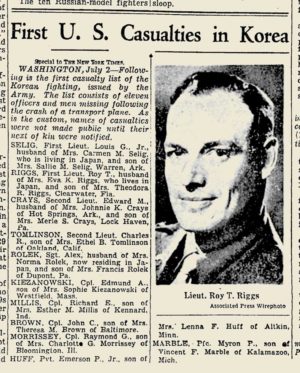 Jul 2: Korean War: Pentagon releases first casualty list. The Defense Department releases its first casualty list of the Korean war. Named are eleven Army officers and enlisted men who were killed when their C-54 transport plane crashed en route from Japan to Korea on June 30. The eleven named are among a total of twenty-three killed in the crash, including the crew of five Air Force personnel. The rest of the names will be released during the week after their families are notified.
Jul 2: Korean War: Pentagon releases first casualty list. The Defense Department releases its first casualty list of the Korean war. Named are eleven Army officers and enlisted men who were killed when their C-54 transport plane crashed en route from Japan to Korea on June 30. The eleven named are among a total of twenty-three killed in the crash, including the crew of five Air Force personnel. The rest of the names will be released during the week after their families are notified.
![]() Jul 2: U.S Army’s Cavalry is no more. For the first time in American history, there is no Cavalry in the U.S. Army. The Army Reorganization Act of 1950 goes into effect, and the Cavalry branch now becomes the Armor branch. Individual units in the armored and, later, aviation units in the Army will continue to carry Cavalry designations and traditions. The most famous unit to retain the Cavalry designation will be the 1st Cavalry Division, which will eventually play prominent roles in the Korean War.
Jul 2: U.S Army’s Cavalry is no more. For the first time in American history, there is no Cavalry in the U.S. Army. The Army Reorganization Act of 1950 goes into effect, and the Cavalry branch now becomes the Armor branch. Individual units in the armored and, later, aviation units in the Army will continue to carry Cavalry designations and traditions. The most famous unit to retain the Cavalry designation will be the 1st Cavalry Division, which will eventually play prominent roles in the Korean War.
▲Monday, July 3
![]()
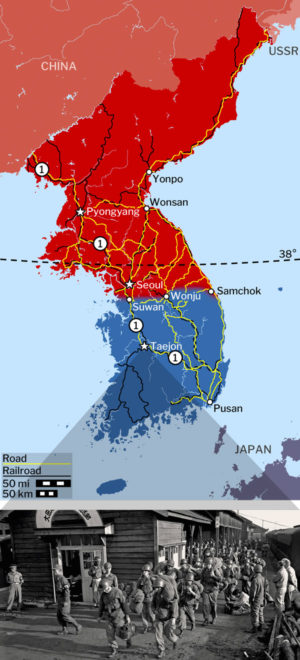 Jul 3: Korean War: Suwan falls, Australian Air Force joins the fight, first U.S. ground troops arrive, Four Korean People’s Army (KPA) tank-led columns strike southward and eastward from the captured South Korean capital of Seoul and take the town of Suwon and its airfield. Four Yak fighters, bearing the red Soviet Star, are spotted strafing Suwan’s airfield. It is not known if the pilots are Soviets or North Korean. Officials speculate that the planes may have been rushed to North Korea and pressed into service by the KPA before the markings could be changed. In the central corridor, the KPA reaches the outskirts of Wonju, their progress slowed by fierce resistance from a still largely-intact ROK division. The North Korean government is so frustrated at the central corridor’s slow pace that they relieve the division commander of his command. KPA forces on the east coast press southward toward Samchok (Samcheok). Australian Air Force fighters engage in action for the first time when they accompany American Superfortresses on bombing runs to Yonpo air base and Pyongyang, which fliers find to be lightly defended. U.S. ground troops arriving from the port of Pusan (Busan) are sent by railroad to Taejon (Daejeon). The next day, they will be rushed up to the front just south of Suwan.
Jul 3: Korean War: Suwan falls, Australian Air Force joins the fight, first U.S. ground troops arrive, Four Korean People’s Army (KPA) tank-led columns strike southward and eastward from the captured South Korean capital of Seoul and take the town of Suwon and its airfield. Four Yak fighters, bearing the red Soviet Star, are spotted strafing Suwan’s airfield. It is not known if the pilots are Soviets or North Korean. Officials speculate that the planes may have been rushed to North Korea and pressed into service by the KPA before the markings could be changed. In the central corridor, the KPA reaches the outskirts of Wonju, their progress slowed by fierce resistance from a still largely-intact ROK division. The North Korean government is so frustrated at the central corridor’s slow pace that they relieve the division commander of his command. KPA forces on the east coast press southward toward Samchok (Samcheok). Australian Air Force fighters engage in action for the first time when they accompany American Superfortresses on bombing runs to Yonpo air base and Pyongyang, which fliers find to be lightly defended. U.S. ground troops arriving from the port of Pusan (Busan) are sent by railroad to Taejon (Daejeon). The next day, they will be rushed up to the front just south of Suwan.
![]()
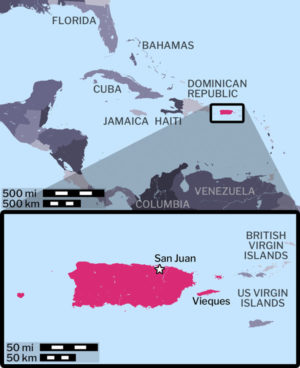 Jul 3: Puerto Rico to become “Free Associated State.” President Harry Truman signs the Puerto Rico Federal Relations Act into law, which offers Puerto Rico the decision of whether it should become a “Free Associated State” of the United States. The new designation falls far short of statehood, but it will allow the territory to organize a constitutional convention to write a new constitution, which would be subject to the approval of Congress. Under the law, Puerto Rico is to hold a referendum to determine whether the people of Puerto Rico will accept or reject the territory’s new status. Puerto Rico residents, who are full U.S. citizens, only received the right to elect their own governor two years ago. Before then, the governor had been appointed by the President. The President still retains the right to appoint the territory’s auditor and Supreme Court judges. Under the new law, Puerto Ricans will have the right to select those office holders also. The law had passed the Senate unanimously and the House with only one dissension. That “no” vote came from Rep. Vito Marcantonio (Am Labor-NY), whose East Harlem district includes a large number of Puerto Rican residents. Marcantonio opposes the bill because it does not offer Puerto Rico the option of full independence. A 1948 law in Puerto Rico, called the Gag Law, makes it a felony to advocate full independence. It even makes it a felony to own or display the Puerto Rican flag, even in the privacy of one’s own home. The American flag is the only flag permitted on the island. That law makes it virtually impossible for Puerto Ricans living in the territory who want independence to make their case for it.
Jul 3: Puerto Rico to become “Free Associated State.” President Harry Truman signs the Puerto Rico Federal Relations Act into law, which offers Puerto Rico the decision of whether it should become a “Free Associated State” of the United States. The new designation falls far short of statehood, but it will allow the territory to organize a constitutional convention to write a new constitution, which would be subject to the approval of Congress. Under the law, Puerto Rico is to hold a referendum to determine whether the people of Puerto Rico will accept or reject the territory’s new status. Puerto Rico residents, who are full U.S. citizens, only received the right to elect their own governor two years ago. Before then, the governor had been appointed by the President. The President still retains the right to appoint the territory’s auditor and Supreme Court judges. Under the new law, Puerto Ricans will have the right to select those office holders also. The law had passed the Senate unanimously and the House with only one dissension. That “no” vote came from Rep. Vito Marcantonio (Am Labor-NY), whose East Harlem district includes a large number of Puerto Rican residents. Marcantonio opposes the bill because it does not offer Puerto Rico the option of full independence. A 1948 law in Puerto Rico, called the Gag Law, makes it a felony to advocate full independence. It even makes it a felony to own or display the Puerto Rican flag, even in the privacy of one’s own home. The American flag is the only flag permitted on the island. That law makes it virtually impossible for Puerto Ricans living in the territory who want independence to make their case for it.
▲Tuesday, July 4
Independence Day (US)
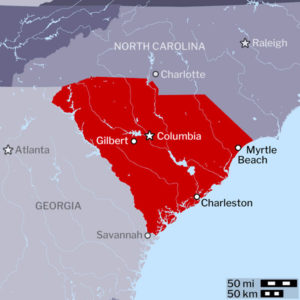 Jul 4: South Carolina Senate race: Strom Thurmond is accused of inviting a Negro to the governor’s mansion. South Carolina Gov. Strom Thurmond and Sen. Olin D. Johnston meet in tiny Gilbert, as part of the South Carolina Democratic Party’s county-to-county “speaking” tour of candidates for the July 11 Democratic primary. Johnston, who is defending his Senate seat against Thurmond’s challenge, opens a new segregationist attack by accusing Thurmon of inviting a Negro to the governor’s mansion. Johnston reads from a letter Thurmond had sent to Gov. William H. Hastie of the U.S. Virgin Islands, the first African-American governor in U.S. history. Thurmond’s letter read, in part, “It is my earnest hope that during my term of office you and your family will honor South Carolina with a visit to Columbia and be our guests at the mansion.” Thurmond says the letter was one of many form letters prepared for mailing to all state and territorial governors after the 1948 National Governor’s Conference, and was sent to Hastie because of “a clerical error” in Thurmond’s office.
Jul 4: South Carolina Senate race: Strom Thurmond is accused of inviting a Negro to the governor’s mansion. South Carolina Gov. Strom Thurmond and Sen. Olin D. Johnston meet in tiny Gilbert, as part of the South Carolina Democratic Party’s county-to-county “speaking” tour of candidates for the July 11 Democratic primary. Johnston, who is defending his Senate seat against Thurmond’s challenge, opens a new segregationist attack by accusing Thurmon of inviting a Negro to the governor’s mansion. Johnston reads from a letter Thurmond had sent to Gov. William H. Hastie of the U.S. Virgin Islands, the first African-American governor in U.S. history. Thurmond’s letter read, in part, “It is my earnest hope that during my term of office you and your family will honor South Carolina with a visit to Columbia and be our guests at the mansion.” Thurmond says the letter was one of many form letters prepared for mailing to all state and territorial governors after the 1948 National Governor’s Conference, and was sent to Hastie because of “a clerical error” in Thurmond’s office.![]()
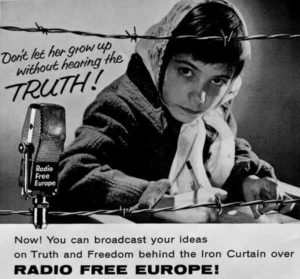 Jul 4: Radio Free Europe begins broadcasting. Radio Free Europe, a project of the National Committee for a Free Europe, begins broadcasting to Czechoslovakia from a transmitter site near Mannheim, West Germany. The broadcasts are limited at first to “audience building,” with programs mostly consisting of announcements of the station’s plans and goals. Full broadcasts will begin on July 14 — Bastille Day in France — with programs featuring exiled leaders speaking to their fellow citizens back home. Over the rest of the year, RFE will begin broadcasting to other Eastern European countries as it assembles teams of journalists for each language service.
Jul 4: Radio Free Europe begins broadcasting. Radio Free Europe, a project of the National Committee for a Free Europe, begins broadcasting to Czechoslovakia from a transmitter site near Mannheim, West Germany. The broadcasts are limited at first to “audience building,” with programs mostly consisting of announcements of the station’s plans and goals. Full broadcasts will begin on July 14 — Bastille Day in France — with programs featuring exiled leaders speaking to their fellow citizens back home. Over the rest of the year, RFE will begin broadcasting to other Eastern European countries as it assembles teams of journalists for each language service.
▲Wednesday, July 5
![]()
 Jul 5: Korean War: U.S. troops engage in combat for the first time, Pvt Kenneth R. Shadrick becomes first U.S. soldier killed in action. U.S. Marines and North Korean troops engage in combat at Osan, about 30 miles south of Seoul. Pvt. Kenneth R. Shadrick, a nineteen-year-old coal miner’s son from Skin Fork, West Virginia, is killed after a fellow soldier shot a bazooka against a tank (seconds after the middle photo is taken; Shadrick is on the right). Shadrick is shot by a machine gun mounted on one of two tanks his squad is trying to knock out. The bullet shatters his arm and goes through his heart. He dies within thirty seconds. News reports call Shadrick the first American ground combatant killed in the war. Back home in the tiny hamlet of Skin Fork the next morning, as his family sits down for breakfast, a neighbor will rush in to tell the family the sad news he heard on the radio. Until the family hears directly from the Defense Department, some will cling to the hope that he is still alive. The telegram will arrive on Friday. Shadrick had dropped out of Pineville High School and enlisted in the Army in 1948, says his older brother, because “he just wanted to see the world.” His parents had to give written permission for him to enlist because he was underage. Shadrick is the first of ninety-five Americans to die that day.
Jul 5: Korean War: U.S. troops engage in combat for the first time, Pvt Kenneth R. Shadrick becomes first U.S. soldier killed in action. U.S. Marines and North Korean troops engage in combat at Osan, about 30 miles south of Seoul. Pvt. Kenneth R. Shadrick, a nineteen-year-old coal miner’s son from Skin Fork, West Virginia, is killed after a fellow soldier shot a bazooka against a tank (seconds after the middle photo is taken; Shadrick is on the right). Shadrick is shot by a machine gun mounted on one of two tanks his squad is trying to knock out. The bullet shatters his arm and goes through his heart. He dies within thirty seconds. News reports call Shadrick the first American ground combatant killed in the war. Back home in the tiny hamlet of Skin Fork the next morning, as his family sits down for breakfast, a neighbor will rush in to tell the family the sad news he heard on the radio. Until the family hears directly from the Defense Department, some will cling to the hope that he is still alive. The telegram will arrive on Friday. Shadrick had dropped out of Pineville High School and enlisted in the Army in 1948, says his older brother, because “he just wanted to see the world.” His parents had to give written permission for him to enlist because he was underage. Shadrick is the first of ninety-five Americans to die that day.
![]() Jul 5: Variety projects that total television programming budgets will surpass that of radio for the first time this fall. The showbiz weekly reports that when the 1950-51 broadcast season starts, “it will represent the start of the era when tho total outlay of sponsorship on talent-production costs for (television) network programming will top the amount channeled into radio.” But radio executives don’t see a drop-off in profits anytime soon. Due to higher production costs for television — sets, cameras, makeup, costumes, lighting, etc. aren’t factors in radio programs — the profit margins for radio programming are still very robust. Variety says that NBC, for example, is having a hard time finding a sponsor who is willing to shell out the extra bucks it takes to bring the wildly popular Amos ‘n’ Andy to television. “And even though NBC wrapped up a client (Pet Milk) for Fibber McGee and Molly, it’s understood that the new bankroller is not paying anywhere near the original $21,000 (about $230,000 today) asking price.” With TV audiences still small, major sponsors show no signs of cutting back on radio in favor of the new entertainment medium.
Jul 5: Variety projects that total television programming budgets will surpass that of radio for the first time this fall. The showbiz weekly reports that when the 1950-51 broadcast season starts, “it will represent the start of the era when tho total outlay of sponsorship on talent-production costs for (television) network programming will top the amount channeled into radio.” But radio executives don’t see a drop-off in profits anytime soon. Due to higher production costs for television — sets, cameras, makeup, costumes, lighting, etc. aren’t factors in radio programs — the profit margins for radio programming are still very robust. Variety says that NBC, for example, is having a hard time finding a sponsor who is willing to shell out the extra bucks it takes to bring the wildly popular Amos ‘n’ Andy to television. “And even though NBC wrapped up a client (Pet Milk) for Fibber McGee and Molly, it’s understood that the new bankroller is not paying anywhere near the original $21,000 (about $230,000 today) asking price.” With TV audiences still small, major sponsors show no signs of cutting back on radio in favor of the new entertainment medium.
▲Thursday, July 6
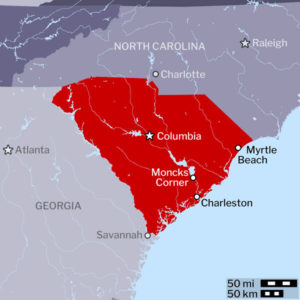 Jul 6: South Carolina Senate race: “The only applause my opponent received here today was from the colored people.” The two candidates for South Carolina’s Senate seat, Gov. Strom Thurmond and Sen. Olin Johnston, take their racially-charged campaigns to Moncks Corner as part of the Democratic party’s county-to-county “speaking” at each of the state’s forty-six counties. (Moncks Corner, by the way, is named for Thomas Monck, a slaveholder who branded his slaves with the name “T Monck” on their chests.) The audience at Moncks Corner is estimated to be about 500, about half of them African-Americans. During Thurmond’s allotted rebuttal time following their speeches, Thurmand says, “I appreciate the fact that the applause for me came from the white people of Berkeley county. The only applause my opponent received here today was from the colored people who have been deceived by him.” Johnston again brings up Thurmond’s invitation to Gov. William H. Hastie of the Virgin Islands, the first African-American governor in U.S. history, to stay at the executive mansion. Thurmond insists that the invitation wsa the result of “a clerical error.” Following the Thurmond’s and Johnston’s appearance, A.J. Clement, Jr., a Charleston African-American businessman who is in a quixotic run for Rep. L. Mendel Rivers’s seat in the first congressional district, says “You have just had a clear cut illustration of why I am a candidate. For too long a time the politicians of South Carolina has played race against race.”
Jul 6: South Carolina Senate race: “The only applause my opponent received here today was from the colored people.” The two candidates for South Carolina’s Senate seat, Gov. Strom Thurmond and Sen. Olin Johnston, take their racially-charged campaigns to Moncks Corner as part of the Democratic party’s county-to-county “speaking” at each of the state’s forty-six counties. (Moncks Corner, by the way, is named for Thomas Monck, a slaveholder who branded his slaves with the name “T Monck” on their chests.) The audience at Moncks Corner is estimated to be about 500, about half of them African-Americans. During Thurmond’s allotted rebuttal time following their speeches, Thurmand says, “I appreciate the fact that the applause for me came from the white people of Berkeley county. The only applause my opponent received here today was from the colored people who have been deceived by him.” Johnston again brings up Thurmond’s invitation to Gov. William H. Hastie of the Virgin Islands, the first African-American governor in U.S. history, to stay at the executive mansion. Thurmond insists that the invitation wsa the result of “a clerical error.” Following the Thurmond’s and Johnston’s appearance, A.J. Clement, Jr., a Charleston African-American businessman who is in a quixotic run for Rep. L. Mendel Rivers’s seat in the first congressional district, says “You have just had a clear cut illustration of why I am a candidate. For too long a time the politicians of South Carolina has played race against race.”![]() Jul 6: Strike called off at four of five railroads. Citing the government’s threat to take over the railroads, the Switchmen’s Union of North America calls off its twelve-day strike against four Midwestern and Western railroads. The strike continues against the Chicago, Rock Island and Pacific Railroad, which is the largest of the five railroads the union targeted. The strikers are demanding a reduction of their work week from 48 hours to 40 hours, but with no loss in pay. Railroad owners complain that this amounts to a 20% pay raise, or the equivalent of 31¢ an hour (about $3.35 today). The union orders about 2,500 of the 4,000 striking switchmen to return to work at he Chicago Great Western; the Denver and Rio Grande Western; the Western Pacific; and the Great Northern railroads.
Jul 6: Strike called off at four of five railroads. Citing the government’s threat to take over the railroads, the Switchmen’s Union of North America calls off its twelve-day strike against four Midwestern and Western railroads. The strike continues against the Chicago, Rock Island and Pacific Railroad, which is the largest of the five railroads the union targeted. The strikers are demanding a reduction of their work week from 48 hours to 40 hours, but with no loss in pay. Railroad owners complain that this amounts to a 20% pay raise, or the equivalent of 31¢ an hour (about $3.35 today). The union orders about 2,500 of the 4,000 striking switchmen to return to work at he Chicago Great Western; the Denver and Rio Grande Western; the Western Pacific; and the Great Northern railroads.
▲Friday, July 7
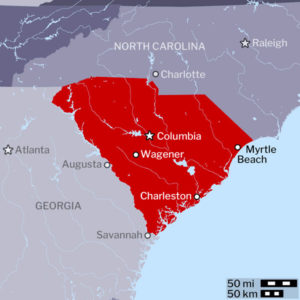 Jul 7: Large KKK rally at Wagener, SC. Four to five hundred robed and hooded klansmen, and well over two thousand spectators, attend the rally. After a brief parade through town in the drizzling rain, Thomas Hamilton, Grand Dragon of the Association of Carolina Klans, speaks to the crowd as a twelve-foot cross blazes nearby. His topic for the night: “America first, right or wrong.” He devotes a large part of his speech attacking Jews. “The Christian seems to swallow all the propaganda handed out by the Jews, and then likes to kid himself that he is a Christian. You have been warned that we are being betrayed by many of our so-called educators, preachers, politicians, radio commentators, newspapers and magazines, who speak as well as write favorably for socialism, one-world government and Communism. Even the schools and churches in South Carolina are being infiltrated with these doctrines. … The Constitution of the United States was drawn up by white people for white people, and not Jews and Negroes and alien minorities.” The rally is timed to take place just before the state-wide Democratic primary, which effectively determines the winner of the general election. Gov. Strom Thurmond is seeking to oust Sen. Olin D. Johnston, who Lee denounces as “a man will drink a toast to (Attorney General) J. Howard McGrath, the author of the bill to end segregation in the United States.” He also predicts that “blood will flow” if the recent U.S. Supreme Court decisions result in desegregation in South Carolina schools. The rally is followed by a hash and barbecue supper.
Jul 7: Large KKK rally at Wagener, SC. Four to five hundred robed and hooded klansmen, and well over two thousand spectators, attend the rally. After a brief parade through town in the drizzling rain, Thomas Hamilton, Grand Dragon of the Association of Carolina Klans, speaks to the crowd as a twelve-foot cross blazes nearby. His topic for the night: “America first, right or wrong.” He devotes a large part of his speech attacking Jews. “The Christian seems to swallow all the propaganda handed out by the Jews, and then likes to kid himself that he is a Christian. You have been warned that we are being betrayed by many of our so-called educators, preachers, politicians, radio commentators, newspapers and magazines, who speak as well as write favorably for socialism, one-world government and Communism. Even the schools and churches in South Carolina are being infiltrated with these doctrines. … The Constitution of the United States was drawn up by white people for white people, and not Jews and Negroes and alien minorities.” The rally is timed to take place just before the state-wide Democratic primary, which effectively determines the winner of the general election. Gov. Strom Thurmond is seeking to oust Sen. Olin D. Johnston, who Lee denounces as “a man will drink a toast to (Attorney General) J. Howard McGrath, the author of the bill to end segregation in the United States.” He also predicts that “blood will flow” if the recent U.S. Supreme Court decisions result in desegregation in South Carolina schools. The rally is followed by a hash and barbecue supper.![]() Jul 7: Korean War: U.N. Security Council authorizes unified command under the U.S. leadership for U.N. armed forces in Korea. The United Nations Security Council authorizes the United States to establish a unified command for the U.N. Armed Forces in Korea. Seven nations — the U.S., Britain, France, Nationalist China, Cuba, Ecuador and Norway — vote to support the resolution, the minimum required for passage. Three nations abstain — Egypt, India and Yugoslavia. The Soviet Union is absent. It is boycotting Security Council meetings due to the presence of Nationalist China on the Council. But their boycott means that they aren’t present to issue a veto. President Truman names Gen. Douglas MacArthur commanding general of the U.N. forces.
Jul 7: Korean War: U.N. Security Council authorizes unified command under the U.S. leadership for U.N. armed forces in Korea. The United Nations Security Council authorizes the United States to establish a unified command for the U.N. Armed Forces in Korea. Seven nations — the U.S., Britain, France, Nationalist China, Cuba, Ecuador and Norway — vote to support the resolution, the minimum required for passage. Three nations abstain — Egypt, India and Yugoslavia. The Soviet Union is absent. It is boycotting Security Council meetings due to the presence of Nationalist China on the Council. But their boycott means that they aren’t present to issue a veto. President Truman names Gen. Douglas MacArthur commanding general of the U.N. forces.
![]()
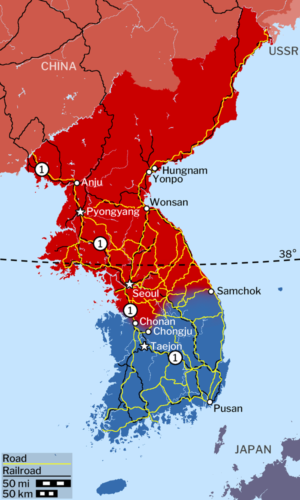 Jul 7: Korean War: U.S. troops pushed south, South Koreans in full rout. U.S. troops in Korea, which number only about 500 so far, are forced to pull back fifteen miles and regroup at Chonan (Cheonan). South Korean troops on the western front are in full rout. American officials estimate that they are facing fifteen North Korean divisions, or 75,000 to 90,000 soldiers, which are approaching Chonan and Chongju (Cheongju). In Taejon (Daejeon), South Korea’s temporary capital and important transportation hub, refugees are already seen leaving the city. The U.S. Air Force strikes airfields, oil storage and port facilities in Hungnam (Heungnam), Yonpo, Wonsan, Anju, Pyongyang, and Seoul. While American soldiers are being rushed to Korea, Truman orders the Army, Navy and Air Force to abandon its peacetime manpower quotas and begin a buildup of forces, using the draft if necessary. The three services immediately put out a call for volunteers and start preparations to resume the draft.
Jul 7: Korean War: U.S. troops pushed south, South Koreans in full rout. U.S. troops in Korea, which number only about 500 so far, are forced to pull back fifteen miles and regroup at Chonan (Cheonan). South Korean troops on the western front are in full rout. American officials estimate that they are facing fifteen North Korean divisions, or 75,000 to 90,000 soldiers, which are approaching Chonan and Chongju (Cheongju). In Taejon (Daejeon), South Korea’s temporary capital and important transportation hub, refugees are already seen leaving the city. The U.S. Air Force strikes airfields, oil storage and port facilities in Hungnam (Heungnam), Yonpo, Wonsan, Anju, Pyongyang, and Seoul. While American soldiers are being rushed to Korea, Truman orders the Army, Navy and Air Force to abandon its peacetime manpower quotas and begin a buildup of forces, using the draft if necessary. The three services immediately put out a call for volunteers and start preparations to resume the draft.
![]() Jul 7: Truman asks for funds to develop the hydrogen bomb. President Harry Truman asks Congress to provide $260 million (about $2.8 billion today) to develop the hydrogen bomb. This request comes amid a flurry of high level meetings at the White House over the past week to plan America’s response to the war in Korea in particular and national security in general. The White House tries to downplay the appropriation request. In his request to Congress, Truman says that he is making it “in furtherance of my directive of Jan 31, 1950,” in which he ordered the Atomic Energy Commission to “continue its work on all forms of atomic weapons, including the so-called hydrogen or super-bomb.” Sen. Brien McMahon (D-CT), chair of the Congressional Joint Atomic Committee, says that Truman’s request was conceived “some time ago, and that Congress would have been asked to provide these same funds whether or not the Communists had attacked Southern Korea. This budget request warns — as Korea warns — against complacency and against falling behind in the urgent and accelerating atomic weapons race.” The Soviet Union’s successful detonation of an atomic bomb last September has instilled a bipartisan political urgency to maintain American nuclear superiority.
Jul 7: Truman asks for funds to develop the hydrogen bomb. President Harry Truman asks Congress to provide $260 million (about $2.8 billion today) to develop the hydrogen bomb. This request comes amid a flurry of high level meetings at the White House over the past week to plan America’s response to the war in Korea in particular and national security in general. The White House tries to downplay the appropriation request. In his request to Congress, Truman says that he is making it “in furtherance of my directive of Jan 31, 1950,” in which he ordered the Atomic Energy Commission to “continue its work on all forms of atomic weapons, including the so-called hydrogen or super-bomb.” Sen. Brien McMahon (D-CT), chair of the Congressional Joint Atomic Committee, says that Truman’s request was conceived “some time ago, and that Congress would have been asked to provide these same funds whether or not the Communists had attacked Southern Korea. This budget request warns — as Korea warns — against complacency and against falling behind in the urgent and accelerating atomic weapons race.” The Soviet Union’s successful detonation of an atomic bomb last September has instilled a bipartisan political urgency to maintain American nuclear superiority.
▲Saturday, July 8
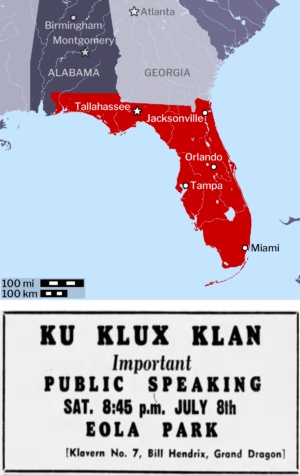 Jul 8: KKK holds rally in Orlando. The Ku Klux Klan rally at Eola Park coincides with an ongoing controversy over a proposal to build a Negro high school (the future Jones High School) on the west side of Orange Blossom Trail. Local residents object to placing the African-American school on the west side — the “white” side — of the Trail, across from the African-American neighborhoods to the east. According to the Orlando Sentinel, a crowd of “several hundred” have turned out, thanks to ads placed in the newspaper. An unidentified man speaks from a car “surrounded by stern-faced men and a scattering of women,” and appeals for new members to “save white civilization in the South.” The speaker branded several churches and church organizations as “Communist fronts.” “Orlando has card-carrying Communists,” he says, citing two ministers “who have encouraged mingling of white children with Negro children in a mongrelization of the race.” During the height of the speech, a newspaper photographer moves up to the auto to try to take a photo. He is quickly surrounded and his camera is smashed to the ground. Police make no arrests.
Jul 8: KKK holds rally in Orlando. The Ku Klux Klan rally at Eola Park coincides with an ongoing controversy over a proposal to build a Negro high school (the future Jones High School) on the west side of Orange Blossom Trail. Local residents object to placing the African-American school on the west side — the “white” side — of the Trail, across from the African-American neighborhoods to the east. According to the Orlando Sentinel, a crowd of “several hundred” have turned out, thanks to ads placed in the newspaper. An unidentified man speaks from a car “surrounded by stern-faced men and a scattering of women,” and appeals for new members to “save white civilization in the South.” The speaker branded several churches and church organizations as “Communist fronts.” “Orlando has card-carrying Communists,” he says, citing two ministers “who have encouraged mingling of white children with Negro children in a mongrelization of the race.” During the height of the speech, a newspaper photographer moves up to the auto to try to take a photo. He is quickly surrounded and his camera is smashed to the ground. Police make no arrests.![]()
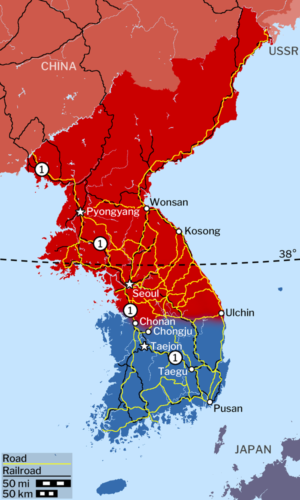 Jul 8: Korean War: Americans, South Koreans fall back, hampered by shortages, exhaustion. Outnumbered and exhausted South Korean troops, augmented by a skeletal crew of Americans, continue to fall back as North Korean tanks press their relentless onslaught. An American communique says, “The numerical strength of the North Koreans against the South Korean-United States forces is still extremely high.” Some estimates have the defenders outnumbered in some positions by about eight to one. American soldiers struggle with shortages of tanks, heavy artillery, air support, and sometimes even ammunition. Meanwhile, Communist guerrillas infiltrate south of the battle lines, posing as refugees and dressed in the traditional white clothing that farmers typically wear. Those guerrillas are busy blowing up bridges, destroying communication lines, and firing rockets onto airstrips behind the lines while South Korean and American troops battle the better-armed and numerically superior regular KPA forces on the front. Says one U.S. soldier, “They really give us a hard time in the field. You see some guy dressed like a farmer with a rake in his hand. You turn your back and he shoots you.” American Air Force targets include refineries and transportation facilities at Wonsan, Kosong, Pyongyang, and Seoul. North Korean forces in Ulchin (Uljin) appear well-positioned to move toward the transportation hub city of Taegu (Daegu) or the vital port of Pusan (Busan). Both cities are critically important to move American troops and supplies from Japan to the front lines.
Jul 8: Korean War: Americans, South Koreans fall back, hampered by shortages, exhaustion. Outnumbered and exhausted South Korean troops, augmented by a skeletal crew of Americans, continue to fall back as North Korean tanks press their relentless onslaught. An American communique says, “The numerical strength of the North Koreans against the South Korean-United States forces is still extremely high.” Some estimates have the defenders outnumbered in some positions by about eight to one. American soldiers struggle with shortages of tanks, heavy artillery, air support, and sometimes even ammunition. Meanwhile, Communist guerrillas infiltrate south of the battle lines, posing as refugees and dressed in the traditional white clothing that farmers typically wear. Those guerrillas are busy blowing up bridges, destroying communication lines, and firing rockets onto airstrips behind the lines while South Korean and American troops battle the better-armed and numerically superior regular KPA forces on the front. Says one U.S. soldier, “They really give us a hard time in the field. You see some guy dressed like a farmer with a rake in his hand. You turn your back and he shoots you.” American Air Force targets include refineries and transportation facilities at Wonsan, Kosong, Pyongyang, and Seoul. North Korean forces in Ulchin (Uljin) appear well-positioned to move toward the transportation hub city of Taegu (Daegu) or the vital port of Pusan (Busan). Both cities are critically important to move American troops and supplies from Japan to the front lines.
![]()
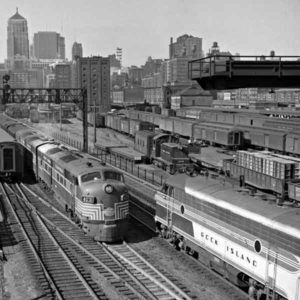 Jul 8: Truman orders seizure of strike-bound Rock Island Railroad. President Truman orders the U.S. Army to seize the Rock Island Railroad, the last railroad whose operations are still halted by a strike by the Switchmen’s Union of North America. The Army then turns to the Justice Department to obtain an injunction ordering the switchmen back to work. The seizure-plus-injunction method was used in 1948 to prevent a national rail stoppage, and is based on the President’s powers as Commander in Chief and a 1916 seizure statute. The union had rejected the recommendations for a settlement from an emergency presidential board. “It is essential,” says Truman, “to the national defense and to the security of the nation, to the public health and to the public welfare generally, that every possible step be taken by the government for the operation of this railroad.” Under the terms of the seizure, the company’s management will continue to operate the railroad, including collecting revenue, paying bills, and taking profit as before, but under the nominal leadership of the Army. The President’s action amounts to a warning to other railroad unions threatening a wider strike next Saturday.
Jul 8: Truman orders seizure of strike-bound Rock Island Railroad. President Truman orders the U.S. Army to seize the Rock Island Railroad, the last railroad whose operations are still halted by a strike by the Switchmen’s Union of North America. The Army then turns to the Justice Department to obtain an injunction ordering the switchmen back to work. The seizure-plus-injunction method was used in 1948 to prevent a national rail stoppage, and is based on the President’s powers as Commander in Chief and a 1916 seizure statute. The union had rejected the recommendations for a settlement from an emergency presidential board. “It is essential,” says Truman, “to the national defense and to the security of the nation, to the public health and to the public welfare generally, that every possible step be taken by the government for the operation of this railroad.” Under the terms of the seizure, the company’s management will continue to operate the railroad, including collecting revenue, paying bills, and taking profit as before, but under the nominal leadership of the Army. The President’s action amounts to a warning to other railroad unions threatening a wider strike next Saturday.
![]()
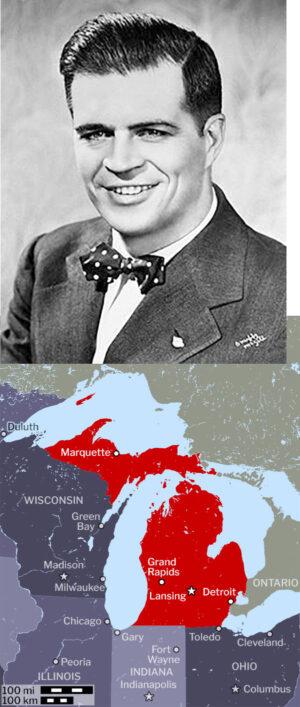 Jul 8: Michigan governor briefly held hostage at state penitentiary. Three inmates at the Marquette Branch Prison in Michigan seize Gov. G. Mennen Williams (D) in the prison kitchen during an escape attempt. Gov. Williams was at Marquette to discuss its yearly budget. After the meeting, Warden Emory Jacques accompanies Gov. Williams on a brief tour of the mess hall as prisoners are eating lunch. While they are standing along the mess hall’s back wall, three convicts emerge from the kitchen. One grabs the governor and drags him back into the kitchen while the other two hold off the guards. Soon about twenty prisoners join the fight, which quickly ends when Williams’s bodyguard shoots at the convict holding the governor at knifepoint, wounding the convict in the stomach. Gov. Williams is unharmed, but his bodyguard suffers two small stab wounds, and a prison guard’s arm is broken. Two of prisoners who initiated the attack are quickly thrown into solitary confinement. The third dies from his gunshot wound. Gov. Williams continues his tour of Marquette and the Upper Peninsula.
Jul 8: Michigan governor briefly held hostage at state penitentiary. Three inmates at the Marquette Branch Prison in Michigan seize Gov. G. Mennen Williams (D) in the prison kitchen during an escape attempt. Gov. Williams was at Marquette to discuss its yearly budget. After the meeting, Warden Emory Jacques accompanies Gov. Williams on a brief tour of the mess hall as prisoners are eating lunch. While they are standing along the mess hall’s back wall, three convicts emerge from the kitchen. One grabs the governor and drags him back into the kitchen while the other two hold off the guards. Soon about twenty prisoners join the fight, which quickly ends when Williams’s bodyguard shoots at the convict holding the governor at knifepoint, wounding the convict in the stomach. Gov. Williams is unharmed, but his bodyguard suffers two small stab wounds, and a prison guard’s arm is broken. Two of prisoners who initiated the attack are quickly thrown into solitary confinement. The third dies from his gunshot wound. Gov. Williams continues his tour of Marquette and the Upper Peninsula.
▲Sunday, July 9
▲Monday, July 10
![]()
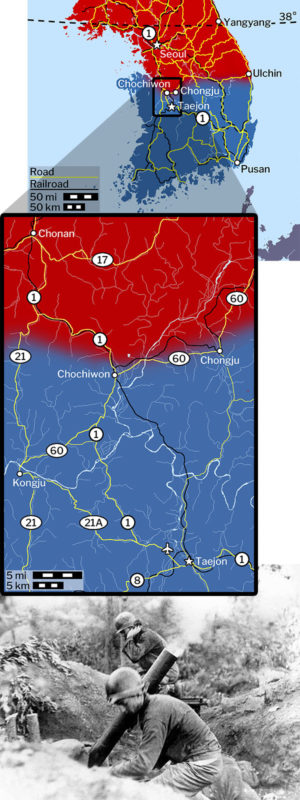 Jul 10: Korean War: U.S., South Korean troops prepare defenses north of Taejon. North Korean troops continue to push toward the temporary South Korean capital of Taejon (Daejeon). South Korean and American forces halt the North’s drive, at least temporarily, at Chochiwon (Jochiwon) a little over fifteen miles north of Taejon. From this position, US and ROK troops guard the northern entrances to Taejon from isolated footholds. Unable to form a solid defense line so quickly, their immediate goal is to hold off the enemy and buy time so that better defenses can be prepared around Taejon. For the first time since the war began, Americans and South Korean troops are aided by round-the-clock aerial bombardments. North Korean armor moving down the main highway from Seoul to Chonan (Cheonan) is caught, bumper to bumper, and attacked by 136 American fighters and 17 B-25 bombers. American aircraft reportedly destroy or disable 36 tanks, 135 trucks and two locomotives. One American sergeant exclaims, “My morale is 300 percent higher this morning!” The first British casualties of the war occur when six men are killed and three wounded on board the British cruiser Jamaica. The cruise is bombarding North Korean positions near Yangyang when a North Korean shore battery fires on the ship.
Jul 10: Korean War: U.S., South Korean troops prepare defenses north of Taejon. North Korean troops continue to push toward the temporary South Korean capital of Taejon (Daejeon). South Korean and American forces halt the North’s drive, at least temporarily, at Chochiwon (Jochiwon) a little over fifteen miles north of Taejon. From this position, US and ROK troops guard the northern entrances to Taejon from isolated footholds. Unable to form a solid defense line so quickly, their immediate goal is to hold off the enemy and buy time so that better defenses can be prepared around Taejon. For the first time since the war began, Americans and South Korean troops are aided by round-the-clock aerial bombardments. North Korean armor moving down the main highway from Seoul to Chonan (Cheonan) is caught, bumper to bumper, and attacked by 136 American fighters and 17 B-25 bombers. American aircraft reportedly destroy or disable 36 tanks, 135 trucks and two locomotives. One American sergeant exclaims, “My morale is 300 percent higher this morning!” The first British casualties of the war occur when six men are killed and three wounded on board the British cruiser Jamaica. The cruise is bombarding North Korean positions near Yangyang when a North Korean shore battery fires on the ship.
![]() Jul 10: U.S. Army issues draft call for 20,000 men as soon as possible. It will take sixty days before the bulk of these draftees begin reporting for induction. All men must register for the draft when they turn eighteen years old, and of all those between the ages of nineteen and twenty-six are subject to the draft. The practice is to call the oldest first, but because of the large number of veterans in that group who can claim deferments due to having fought in World War II, the draft is expected to draw mainly on those in the 23-year-old age group.
Jul 10: U.S. Army issues draft call for 20,000 men as soon as possible. It will take sixty days before the bulk of these draftees begin reporting for induction. All men must register for the draft when they turn eighteen years old, and of all those between the ages of nineteen and twenty-six are subject to the draft. The practice is to call the oldest first, but because of the large number of veterans in that group who can claim deferments due to having fought in World War II, the draft is expected to draw mainly on those in the 23-year-old age group.
▲Tuesday, July 11
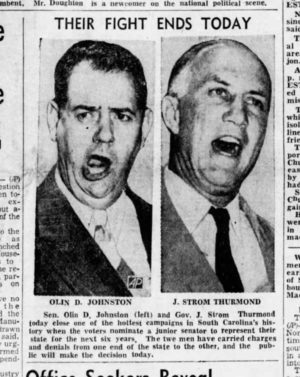 Jul 11: Olin Johnston defeats Strom Thurmond for South Carolina Senate seat. South Carolina’s long and contentious Senatorial campaign for the Democratic nomination comes to an anti-climactic end as Sen. Olin D. Johnson scores a convincing win over Gov. Strom Thurmond. Johnston walked away with 54% of the vote, against 46% for Thurmond. Both men, hardcore segregationists, fought a bitter campaign in which each tried to accuse the other as being soft on segregation. About 50,000 African-Americans cast ballots, voting overwhelmingly for Johnston as the lesser of two evils. Both men hold repulsive positions on civil rights, but Thurmond’s segregationist run as a “Dixiecrat” against President Truman in 1948 sealed his reputation among Black voters. With 27,276 votes separating the two candidates, the African-American vote was likely decisive. As it often happens in the South, Johnston will face no Republican opposition for the general election in November.
Jul 11: Olin Johnston defeats Strom Thurmond for South Carolina Senate seat. South Carolina’s long and contentious Senatorial campaign for the Democratic nomination comes to an anti-climactic end as Sen. Olin D. Johnson scores a convincing win over Gov. Strom Thurmond. Johnston walked away with 54% of the vote, against 46% for Thurmond. Both men, hardcore segregationists, fought a bitter campaign in which each tried to accuse the other as being soft on segregation. About 50,000 African-Americans cast ballots, voting overwhelmingly for Johnston as the lesser of two evils. Both men hold repulsive positions on civil rights, but Thurmond’s segregationist run as a “Dixiecrat” against President Truman in 1948 sealed his reputation among Black voters. With 27,276 votes separating the two candidates, the African-American vote was likely decisive. As it often happens in the South, Johnston will face no Republican opposition for the general election in November.▲Wednesday, July 12
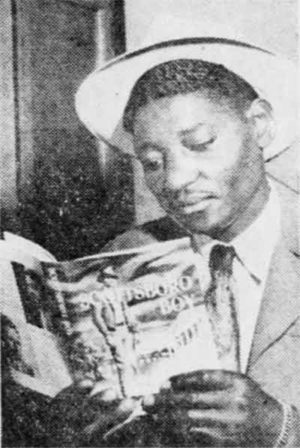 Jul 12: Michigan governor refuses to extradite fugitive “Scottsboro Boy” to Alabama. Michigan’s progressive governor, G. Mennen Williams (D), refuses to extradite Hayward Patterson back to Alabama to complete his 75-year sentence for allegedly raping two white women in 1931. Paterson, one of the principle defendants of the “Scottsboro Boys” case, had spent 16 years in Alabama’s notoriously brutal prison farm system when he escaped in July of 1948. Patterson fled to New York City, and with writer Earl Conrad, wrote Scottsboro Boy, which was released last April. Patterson has lived mainly on the $4,700 advance (about $50,000 today) from Doubleday. He moved to Detroit, where his sister lives, to take a construction job. That’s where the FBI caught up with him two weeks ago. In Scottsboro Boy, Patterson described his arrest, trial, and harrowing experiences as an African-American man in an Alabama prison. His account included names of sadistic guards, wardens, and other prison officials, including the state prison director, Frank R. Boswell. Boswell’s signature is on the extradition papers. Gov. Williams says, “Since the trial one of the two complaining witnesses admitted that she gave perjured testimony after being threatened by local Alabama authorities. …The others have now been released and I can see no justified reason for returning Patterson to prison.”
Jul 12: Michigan governor refuses to extradite fugitive “Scottsboro Boy” to Alabama. Michigan’s progressive governor, G. Mennen Williams (D), refuses to extradite Hayward Patterson back to Alabama to complete his 75-year sentence for allegedly raping two white women in 1931. Paterson, one of the principle defendants of the “Scottsboro Boys” case, had spent 16 years in Alabama’s notoriously brutal prison farm system when he escaped in July of 1948. Patterson fled to New York City, and with writer Earl Conrad, wrote Scottsboro Boy, which was released last April. Patterson has lived mainly on the $4,700 advance (about $50,000 today) from Doubleday. He moved to Detroit, where his sister lives, to take a construction job. That’s where the FBI caught up with him two weeks ago. In Scottsboro Boy, Patterson described his arrest, trial, and harrowing experiences as an African-American man in an Alabama prison. His account included names of sadistic guards, wardens, and other prison officials, including the state prison director, Frank R. Boswell. Boswell’s signature is on the extradition papers. Gov. Williams says, “Since the trial one of the two complaining witnesses admitted that she gave perjured testimony after being threatened by local Alabama authorities. …The others have now been released and I can see no justified reason for returning Patterson to prison.”![]()
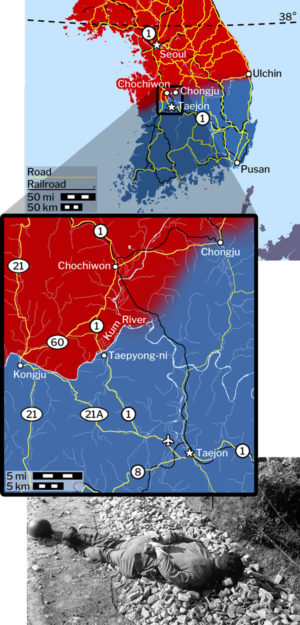 Jul 12: Korean War: U.S., South Koreans withdraw to the Kum River line, bodies of executed American POWs discovered. The Battle of Chochiwon ends as American and South Korean forces, facing overwhelming enemy forces, execute an orderly withdrawal to positions south of the Kum (Geum) River, the last natural barrier between North Korean forces and the temporary South Korean capital of Taejon (Daejeon). As American forces withdraw from Chochiwon (Jochiwon), they discover the bodies of four captured American soldiers, their hands tied behind their backs and shot through the head. The U.S. 21st Infantry regiment at Chochiwon has suffered 228 killed, 61 wounded, 215 captured and 27 missing. It will later be determined that 130 of the captured and 20 of the missing have died, making Chochiwon the bloodiest battle for American forces in Korea so far. By nightfall, U.S. forces have taken up blocking positions at Taepyong-ni (Daepyeong-dong) and along Highway 21A to the west of Taejon (Daejeon), and have blown up the bridges crossing the Kum after completing their retreat. South Korean forces are still holding off the enemy at Chongju (Cheongju), but with their left flank exposed, they will soon withdraw to take up defensive positions along the railroad line going north from Taejon to the Kum River. On the other side of the Kum, an estimated 150,000 Korean People’s Army (KPA) soldiers in fifteen divisions and supported by eighty tanks, are massing for an assault on Taejon.
Jul 12: Korean War: U.S., South Koreans withdraw to the Kum River line, bodies of executed American POWs discovered. The Battle of Chochiwon ends as American and South Korean forces, facing overwhelming enemy forces, execute an orderly withdrawal to positions south of the Kum (Geum) River, the last natural barrier between North Korean forces and the temporary South Korean capital of Taejon (Daejeon). As American forces withdraw from Chochiwon (Jochiwon), they discover the bodies of four captured American soldiers, their hands tied behind their backs and shot through the head. The U.S. 21st Infantry regiment at Chochiwon has suffered 228 killed, 61 wounded, 215 captured and 27 missing. It will later be determined that 130 of the captured and 20 of the missing have died, making Chochiwon the bloodiest battle for American forces in Korea so far. By nightfall, U.S. forces have taken up blocking positions at Taepyong-ni (Daepyeong-dong) and along Highway 21A to the west of Taejon (Daejeon), and have blown up the bridges crossing the Kum after completing their retreat. South Korean forces are still holding off the enemy at Chongju (Cheongju), but with their left flank exposed, they will soon withdraw to take up defensive positions along the railroad line going north from Taejon to the Kum River. On the other side of the Kum, an estimated 150,000 Korean People’s Army (KPA) soldiers in fifteen divisions and supported by eighty tanks, are massing for an assault on Taejon.
▲Thursday, July 13
▲Friday, July 14
![]()
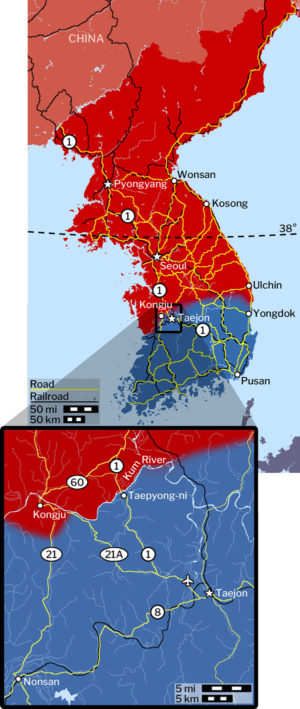 Jul 14: Korean War: North Koreans cross Kum River. The first day of the Battle of Taejon (Daejeon) opens with the North’s Korean Peoples Army (KPA) launching a massive artillery and mortar attack against positions held by the 34th Infantry. American positions at Kongju (Gongju) on the western flank. The Americans are in a desperate situation. They are short of ammunition, they have no tanks to counter KPA armor, and they have no live batteries to power their radios — some of which don’t work anyway — and communication wire to connect field telephones is impossible to come by. All of this make coordination and communications difficult against a well-armed, well-trained and coordinated enemy. About 500 North Korean infantry soldiers cross the river on barges. This is followed with more mortar and tank fire, which take out what remains of telephone communications and the radio truck at Headquarters Battery, wiping out what little tenuous communications they still had. Several battalions of the 34th Infantry are quickly overrun and the entire division is forced to withdraw to Nonsan, to take up new defensive positions west of Taejon. Americans are surprised to see however that the KPA has only brought a couple of their tanks across the river. Instead, the KPA has shifted the bulk of their armor to the north and northeast of Taejon, with the apparent aim of overwhelming an exhausted South Korean Army defending the approaches to the Kum (Geum) River there. In Taejon, South Korea’s temporary capital until now, the remnants of the South Korean government evacuate to a new temporary capital “somewhere in the south.” On the East coast KPA forces continue pressing the South Koreans southward on the coastal road and from higher positions on the coastal mountains. The KPA is now about halfway to Yongdok (Yeungdeok) from Ulchin (Uljin).
Jul 14: Korean War: North Koreans cross Kum River. The first day of the Battle of Taejon (Daejeon) opens with the North’s Korean Peoples Army (KPA) launching a massive artillery and mortar attack against positions held by the 34th Infantry. American positions at Kongju (Gongju) on the western flank. The Americans are in a desperate situation. They are short of ammunition, they have no tanks to counter KPA armor, and they have no live batteries to power their radios — some of which don’t work anyway — and communication wire to connect field telephones is impossible to come by. All of this make coordination and communications difficult against a well-armed, well-trained and coordinated enemy. About 500 North Korean infantry soldiers cross the river on barges. This is followed with more mortar and tank fire, which take out what remains of telephone communications and the radio truck at Headquarters Battery, wiping out what little tenuous communications they still had. Several battalions of the 34th Infantry are quickly overrun and the entire division is forced to withdraw to Nonsan, to take up new defensive positions west of Taejon. Americans are surprised to see however that the KPA has only brought a couple of their tanks across the river. Instead, the KPA has shifted the bulk of their armor to the north and northeast of Taejon, with the apparent aim of overwhelming an exhausted South Korean Army defending the approaches to the Kum (Geum) River there. In Taejon, South Korea’s temporary capital until now, the remnants of the South Korean government evacuate to a new temporary capital “somewhere in the south.” On the East coast KPA forces continue pressing the South Koreans southward on the coastal road and from higher positions on the coastal mountains. The KPA is now about halfway to Yongdok (Yeungdeok) from Ulchin (Uljin).
▲Saturday, July 15
▲Sunday, July 16
![]()
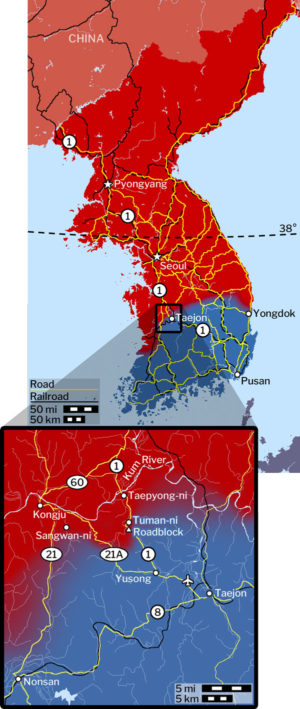 Jul 16: Korean War: North Koreans launch massive attack across Kum River. At 3:00 a.m., a North Korean plane flies over the Kum (Geum) River north of Taejon (Daejeon) and drops a flare, a signal for the KPA to begin a massive attack against the U.S. 19th Infantry’s defensive positions around Taepyong-ni (Daepyeong-dong). Under intense fire, the North Koreans cross the Kum, using boats and rafts, or by wading and swimming. Within the hour, Korean Peoples Army (KPA) troops have overrun one American platoon east of Taepying-ni. By daybreak, a long line of KPA soldiers had crossed the Kum just west of Taepyong-ni and are seen moving through the mountains west of the highway, bypassing American positions along the road. Other crossings take place all along the Kum in front of American positions. The Americans quickly assemble of reserve force of cooks, drivers, mechanics and clerks for a desperate counterattack which, surprisingly, helps to hold Taepyong-ni for the time being. But in the meantime, the KPA, which by now have reach positions southwest of Tuman-ni, fire on a line of re-supply American jeeps on the narrow highway, causing a roadblock. The 19th’s Infantry’s orders had been to hold the line until midnight, and then retreat southward to new defensive positions. But by early afternoon, it becomes obvious that the line cannot hold. The 19th begins the dangerous and arduous task, in 100-degree heat, to withdraw southward through the mountains. By nightfall, western elements of the 19th Infantry withdraw from Sangwan-ni, and a new defensive position is established at Yusong (Yuseong). The battle was devastating for the 19th Infantry. Of the 900 men in position along the river, only 434 report for duty in the Taejon area the next day. Total loss for the day’s action is 650 out of 3,401 personnel. Now, the aim is to hold Taejon until July 20th, to buy time for more reinforcements and material to arrive for another set of defensive lines to protect the vital port of Pusan (Busan).
Jul 16: Korean War: North Koreans launch massive attack across Kum River. At 3:00 a.m., a North Korean plane flies over the Kum (Geum) River north of Taejon (Daejeon) and drops a flare, a signal for the KPA to begin a massive attack against the U.S. 19th Infantry’s defensive positions around Taepyong-ni (Daepyeong-dong). Under intense fire, the North Koreans cross the Kum, using boats and rafts, or by wading and swimming. Within the hour, Korean Peoples Army (KPA) troops have overrun one American platoon east of Taepying-ni. By daybreak, a long line of KPA soldiers had crossed the Kum just west of Taepyong-ni and are seen moving through the mountains west of the highway, bypassing American positions along the road. Other crossings take place all along the Kum in front of American positions. The Americans quickly assemble of reserve force of cooks, drivers, mechanics and clerks for a desperate counterattack which, surprisingly, helps to hold Taepyong-ni for the time being. But in the meantime, the KPA, which by now have reach positions southwest of Tuman-ni, fire on a line of re-supply American jeeps on the narrow highway, causing a roadblock. The 19th’s Infantry’s orders had been to hold the line until midnight, and then retreat southward to new defensive positions. But by early afternoon, it becomes obvious that the line cannot hold. The 19th begins the dangerous and arduous task, in 100-degree heat, to withdraw southward through the mountains. By nightfall, western elements of the 19th Infantry withdraw from Sangwan-ni, and a new defensive position is established at Yusong (Yuseong). The battle was devastating for the 19th Infantry. Of the 900 men in position along the river, only 434 report for duty in the Taejon area the next day. Total loss for the day’s action is 650 out of 3,401 personnel. Now, the aim is to hold Taejon until July 20th, to buy time for more reinforcements and material to arrive for another set of defensive lines to protect the vital port of Pusan (Busan).
![]()
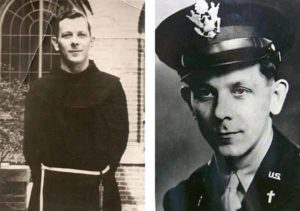 Jul 16: Korean War: Norht Koreans execute 30 wounded soldiers and chaplain. Thirty wounded U.S. soldiers and one Army chaplain are executed by North Korean troops on a mountain top northwest of Taejon (Daejeon) near the hamlet of Tuman-ni. The soldiers are laying on litters, waiting to be carried down the mountain, when a North Korean patrol approaches. The Chaplain, Fr. Herman G. Felhoelter, tells the medic to escape and seek help. The medic gets away, despite being shot in the leg. Felhoelter stays behind with the wounded. American observers watch from a distance through binoculars as a patrol of North Korean troops approach and shoot Felhoelter in the head and back while he is kneeling and praying over the wounded. The soldiers then shoot and kill all thirty soldiers before withdrawing back into the forest. Felhoelter, a Franciscan Friar, is the first military chaplain to be killed in Korea. He will be awarded the Distinguished Service Cross.
Jul 16: Korean War: Norht Koreans execute 30 wounded soldiers and chaplain. Thirty wounded U.S. soldiers and one Army chaplain are executed by North Korean troops on a mountain top northwest of Taejon (Daejeon) near the hamlet of Tuman-ni. The soldiers are laying on litters, waiting to be carried down the mountain, when a North Korean patrol approaches. The Chaplain, Fr. Herman G. Felhoelter, tells the medic to escape and seek help. The medic gets away, despite being shot in the leg. Felhoelter stays behind with the wounded. American observers watch from a distance through binoculars as a patrol of North Korean troops approach and shoot Felhoelter in the head and back while he is kneeling and praying over the wounded. The soldiers then shoot and kill all thirty soldiers before withdrawing back into the forest. Felhoelter, a Franciscan Friar, is the first military chaplain to be killed in Korea. He will be awarded the Distinguished Service Cross.
![]()
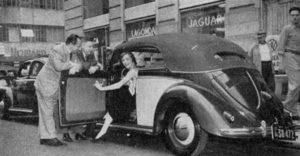 Jul 16: “People’s Automobile” arrives in America. The New York Times announces that a new small car has officially entered the American market. “The German Volkswagen, or People’s Automobile, was demonstrated in a private showing by the Hoffman Motor Car Company, Fifty-ninth Street and Park Avenue. Its introduction in the United States is part of a major bid by West Germany to increase her exports to the United States and earn more dollars, thus increasing her capacity for self support. The volkswagen (sic) now offered for sale here is made in the British Zone of West Germany. The 25-horsepower automobiles, with oil-cooled, airplane-type rear engines are said to have a top speed of 62 (200 km) miles an hour and to travel 34 miles on a gallon of gasoline (7.3 L/100km). … There are four models ranging in prices from a standard sedan at $1,280 (about $13,500 today) to a convertible at $1,997 (about $21,100 today).” Hoffman, who also imports Jaguar, BMW and Porsche, is VW’s exclusive distributor and agent for the U.S. east of the Mississippi. He will sell 157 Type 1s — they will later be affectionately known as Beetles — this year.
Jul 16: “People’s Automobile” arrives in America. The New York Times announces that a new small car has officially entered the American market. “The German Volkswagen, or People’s Automobile, was demonstrated in a private showing by the Hoffman Motor Car Company, Fifty-ninth Street and Park Avenue. Its introduction in the United States is part of a major bid by West Germany to increase her exports to the United States and earn more dollars, thus increasing her capacity for self support. The volkswagen (sic) now offered for sale here is made in the British Zone of West Germany. The 25-horsepower automobiles, with oil-cooled, airplane-type rear engines are said to have a top speed of 62 (200 km) miles an hour and to travel 34 miles on a gallon of gasoline (7.3 L/100km). … There are four models ranging in prices from a standard sedan at $1,280 (about $13,500 today) to a convertible at $1,997 (about $21,100 today).” Hoffman, who also imports Jaguar, BMW and Porsche, is VW’s exclusive distributor and agent for the U.S. east of the Mississippi. He will sell 157 Type 1s — they will later be affectionately known as Beetles — this year.
▲Monday, July 17
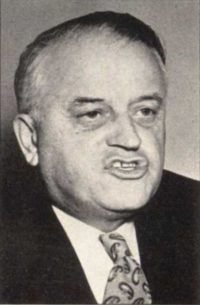 Jul 17: Senator: “They resign voluntarily, don’t they? That’s an admission of their guilt.” The New York Post publishes an interview by Max Lerner with Sen. Kenneth Wherry (R-NE), the GOP’s floor leader and whip, and a primary backer of the ongoing Senate investigations into gay and lesbian employees in the federal government. “You can’t hardly separate homosexuals from subversives,” Wherry says. “But a man of low morality is a menace in the government, whatever he is, and they are all tied up together.” He also defends the practice of pushing out employees whose jobs don’t entail a security risk or who are forced to resign for something that may have occurred many years ago. “They resign voluntarily, don’t they?” replies Wherry. “That’s an admission of their guilt. That’s all I need. My feeling is that there will be very few people hurt.”
Jul 17: Senator: “They resign voluntarily, don’t they? That’s an admission of their guilt.” The New York Post publishes an interview by Max Lerner with Sen. Kenneth Wherry (R-NE), the GOP’s floor leader and whip, and a primary backer of the ongoing Senate investigations into gay and lesbian employees in the federal government. “You can’t hardly separate homosexuals from subversives,” Wherry says. “But a man of low morality is a menace in the government, whatever he is, and they are all tied up together.” He also defends the practice of pushing out employees whose jobs don’t entail a security risk or who are forced to resign for something that may have occurred many years ago. “They resign voluntarily, don’t they?” replies Wherry. “That’s an admission of their guilt. That’s all I need. My feeling is that there will be very few people hurt.”![]()
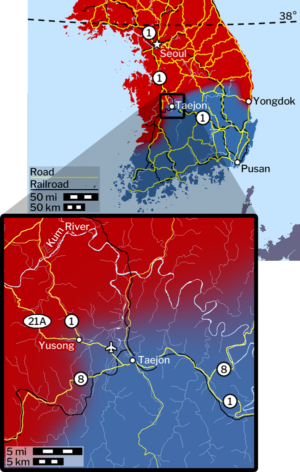 Jul 17: Korean War: Defenses crumble at Yondok, battle lines tighten at Taejon. The South Korean defense of Yongdok (Yeungdeok) all but collapses as exhausted and disorganized ROK forces fall to the south of the city. U.N. Command becomes alarmed as this could lead to a rapid drive southward to the vital port of Pusan (Busan), a disaster which would guarantee North Korea’s complete victory. The U.S. rushes newly-arrived artillery support to bolster South Korean forces. Over the next three weeks, Yongdok will change hands several times, sometimes in just one day. At Taejon (Daejeon), U.S. Infantry is pulled back to more defensible positions around the city’s western and northern approaches. Additional personnel are placed east of the city to protect supply lines and escape routes for a planned pull-out on July 20. Protecting that eastern route is extremely difficult. North Korean guerrillas, dressed in the traditional white clothing that farmers and many refugees typically wear —- some are even wearing American fatigues — infiltrate around the lines and conduct hit-and-run raids. The Taejon airfield, where a number of American and Australian fighter planes have been based, comes under intensive shelling and is no longer operational. The aircraft have already been evacuated. A spokesman at Gen. Douglas MacArthur’s headquarters denies reports that the defenses around Taejon have cracked. Says the spokesman, “Nothing in those reports indicates either a collapse or a breakthrough.” A local field report supports that statement, but with a telling qualification: “Taejon has not yet fallen.”
Jul 17: Korean War: Defenses crumble at Yondok, battle lines tighten at Taejon. The South Korean defense of Yongdok (Yeungdeok) all but collapses as exhausted and disorganized ROK forces fall to the south of the city. U.N. Command becomes alarmed as this could lead to a rapid drive southward to the vital port of Pusan (Busan), a disaster which would guarantee North Korea’s complete victory. The U.S. rushes newly-arrived artillery support to bolster South Korean forces. Over the next three weeks, Yongdok will change hands several times, sometimes in just one day. At Taejon (Daejeon), U.S. Infantry is pulled back to more defensible positions around the city’s western and northern approaches. Additional personnel are placed east of the city to protect supply lines and escape routes for a planned pull-out on July 20. Protecting that eastern route is extremely difficult. North Korean guerrillas, dressed in the traditional white clothing that farmers and many refugees typically wear —- some are even wearing American fatigues — infiltrate around the lines and conduct hit-and-run raids. The Taejon airfield, where a number of American and Australian fighter planes have been based, comes under intensive shelling and is no longer operational. The aircraft have already been evacuated. A spokesman at Gen. Douglas MacArthur’s headquarters denies reports that the defenses around Taejon have cracked. Says the spokesman, “Nothing in those reports indicates either a collapse or a breakthrough.” A local field report supports that statement, but with a telling qualification: “Taejon has not yet fallen.”
![]()
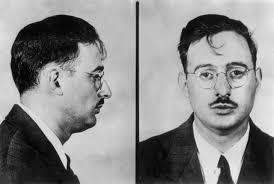 Jul 17: Julius Rosenberg arrested for espionage. He is arrested after his brother-in-law, David Greenglass, identifies him as a spy who passed nuclear secrets to the Soviets. Greenglass was arrested in June and is of accused of giving highly sensitive atomic secrets to Harry Gold, who in turned sent them on to the Soviet Union via convicted spy Klaus Fuchs. The FBI alleges that Rosenberg recruited Greenglass to obtain atomic secrets to pass to Gold in Albuquerque, and that Rosenberg allegedly gave Greenglass specific information on the type of atomic data the Soviets wanted.
Jul 17: Julius Rosenberg arrested for espionage. He is arrested after his brother-in-law, David Greenglass, identifies him as a spy who passed nuclear secrets to the Soviets. Greenglass was arrested in June and is of accused of giving highly sensitive atomic secrets to Harry Gold, who in turned sent them on to the Soviet Union via convicted spy Klaus Fuchs. The FBI alleges that Rosenberg recruited Greenglass to obtain atomic secrets to pass to Gold in Albuquerque, and that Rosenberg allegedly gave Greenglass specific information on the type of atomic data the Soviets wanted.
![]() Jul 17: Senate Subcommittee investigaing McCarthy’s claims release its final report. A special Senate Foreign Relations subcommittee, chaired by Sen. Millard Tydings (D-MD) and charged with investigating Sen. Joseph McCarthy’s claims of Communists in the State Department, releases its final report on a straight 3-2 party-line vote. The report denounces McCarthy’s allegations and clears every individual he named. It condemns McCarthy’s charges as “a fraud and a hoax … the most nefarious campaign of half-truths and untruth in the history of the Republic.” The report recommends that a special commission be appointed by Congress and the President to determine whether the government’s loyalty program is adequate “at this critical juncture of our international relations.” Democratic Sens. Theodore Green (RI) and Brien McMahon (CT) join Tydings in approving th report. The Republicans members denounce it. Sen. Henry Cabot Lodge (R-MA) calls it “superficial and inconclusive.” Sen. Bourke Hickenlooper (R-IA) said it was “completely inadequate” and that there was “nothing on which conclusions could properly be based, one way or the other.” After the report is released, McCarthy calls it “a green light to the Red Fifth column in the United States” and “the most evil fraud that has ever besmirched and dishonored the good name of the United States Senate.”
Jul 17: Senate Subcommittee investigaing McCarthy’s claims release its final report. A special Senate Foreign Relations subcommittee, chaired by Sen. Millard Tydings (D-MD) and charged with investigating Sen. Joseph McCarthy’s claims of Communists in the State Department, releases its final report on a straight 3-2 party-line vote. The report denounces McCarthy’s allegations and clears every individual he named. It condemns McCarthy’s charges as “a fraud and a hoax … the most nefarious campaign of half-truths and untruth in the history of the Republic.” The report recommends that a special commission be appointed by Congress and the President to determine whether the government’s loyalty program is adequate “at this critical juncture of our international relations.” Democratic Sens. Theodore Green (RI) and Brien McMahon (CT) join Tydings in approving th report. The Republicans members denounce it. Sen. Henry Cabot Lodge (R-MA) calls it “superficial and inconclusive.” Sen. Bourke Hickenlooper (R-IA) said it was “completely inadequate” and that there was “nothing on which conclusions could properly be based, one way or the other.” After the report is released, McCarthy calls it “a green light to the Red Fifth column in the United States” and “the most evil fraud that has ever besmirched and dishonored the good name of the United States Senate.”
▲Tuesday, July 18
![]()
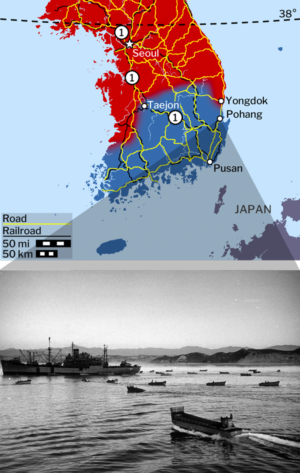 Jul 18: Korean War: U.S. 1st Cavalry lands at Pohang. The U.S. 1st Cavalry Division makes an impressive amphibious landing at Pohang. By executing an amphibious landing, the division accomplishes two aims. First, it is well position to move immediately to Taejon (Daejeon) to support the decimated 24th Division there, or it can move up the coast to support the battle at Yongdok (Yeungdeok). It also avoids bogging down the already congested port facilities at Pusan (Busan), where badly needed supplies for troops already in action are being delivered. The landing begins just as Typhoon Grace lashes the peninsula, and won’t be completed until three days later. The port of Pusan is also shut down for three days, and U.S. army rations will drop to a one-day supply.
Jul 18: Korean War: U.S. 1st Cavalry lands at Pohang. The U.S. 1st Cavalry Division makes an impressive amphibious landing at Pohang. By executing an amphibious landing, the division accomplishes two aims. First, it is well position to move immediately to Taejon (Daejeon) to support the decimated 24th Division there, or it can move up the coast to support the battle at Yongdok (Yeungdeok). It also avoids bogging down the already congested port facilities at Pusan (Busan), where badly needed supplies for troops already in action are being delivered. The landing begins just as Typhoon Grace lashes the peninsula, and won’t be completed until three days later. The port of Pusan is also shut down for three days, and U.S. army rations will drop to a one-day supply.
▲Wednesday, July 19
![]()
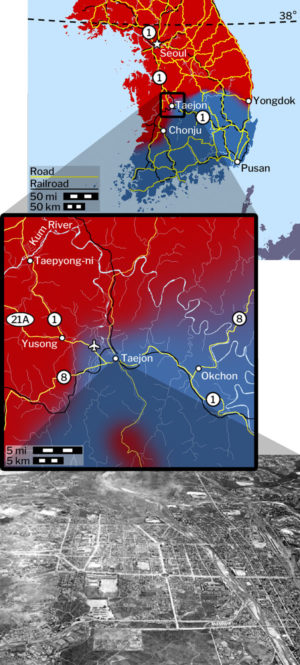 Jul 19: Korean War: Battle of Taejon begins. North Korean forces launch attacks against defensive positions around Taejon (Daejeon), marking the start of two days of intense fighting. The day begins with a North Korean air attack near Okchon (Okcheon), knocking out communications equipment and a bridge, which U.S. engineers quickly repair. To the west, North Korean forces push American forces back from Yusong to positions just a mile west of the airfield, while American defensive positions on Route 8 to the south also come under attack. Throughout the afternoon, the airfield comes under intense mortar and artillery fire coming in from the north and northwest. American reconnaissance aircraft notice that the North Koreans have repaired the bridge crossing the Kum (Geum) River at Taepyong-ni (Daepyeong-dong), and several T-34 tanks are seen making the crossing and streaming down Highway 1. Also this afternoon, Chonju (Jeonju), south of Taejon, falls to the North Koreans. By nightfall, the American defenders at Taejon discover that the North Koreans have set up a roadblock on a secondary road about six miles to the south.
Jul 19: Korean War: Battle of Taejon begins. North Korean forces launch attacks against defensive positions around Taejon (Daejeon), marking the start of two days of intense fighting. The day begins with a North Korean air attack near Okchon (Okcheon), knocking out communications equipment and a bridge, which U.S. engineers quickly repair. To the west, North Korean forces push American forces back from Yusong to positions just a mile west of the airfield, while American defensive positions on Route 8 to the south also come under attack. Throughout the afternoon, the airfield comes under intense mortar and artillery fire coming in from the north and northwest. American reconnaissance aircraft notice that the North Koreans have repaired the bridge crossing the Kum (Geum) River at Taepyong-ni (Daepyeong-dong), and several T-34 tanks are seen making the crossing and streaming down Highway 1. Also this afternoon, Chonju (Jeonju), south of Taejon, falls to the North Koreans. By nightfall, the American defenders at Taejon discover that the North Koreans have set up a roadblock on a secondary road about six miles to the south.
![]()
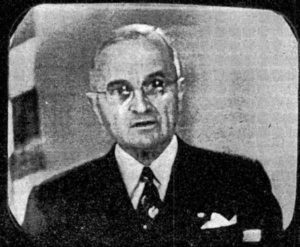 Jul 19: Truman addresses the nation about the situation in Korea. In a speech carried live nationally by radio and in the Eastern half of the county by television (network television connections currently end in Omaha), Truman calls the attack by North Korea “a direct challenge to the efforts of free nations to build the kind of world in which men can live in freedom and peace. This challenge has been presented squarely. We must meet it squarely.” Calling the Communist invasion “an act of raw aggression” with “no justification whatsoever,” Truman praises the United Nations for authorizing a unified response. “The free nations have learned the fateful lesson the the Nineteen Thirties. That lesson is that aggression must be met firmly. Appeasement leads only to further aggression and ultimate war.” Truman warns against the recent rush on consumer goods and food, saying that supplies are plentiful and that the hoarding of food was “especially foolish.” He also warns against profiteers, saying that they are “doing just exactly the thing that any enemy of this country would want him to do.” He says he would not hesitate to recommend rationing and price controls if excessive buying or speculation gets out of hand.
Jul 19: Truman addresses the nation about the situation in Korea. In a speech carried live nationally by radio and in the Eastern half of the county by television (network television connections currently end in Omaha), Truman calls the attack by North Korea “a direct challenge to the efforts of free nations to build the kind of world in which men can live in freedom and peace. This challenge has been presented squarely. We must meet it squarely.” Calling the Communist invasion “an act of raw aggression” with “no justification whatsoever,” Truman praises the United Nations for authorizing a unified response. “The free nations have learned the fateful lesson the the Nineteen Thirties. That lesson is that aggression must be met firmly. Appeasement leads only to further aggression and ultimate war.” Truman warns against the recent rush on consumer goods and food, saying that supplies are plentiful and that the hoarding of food was “especially foolish.” He also warns against profiteers, saying that they are “doing just exactly the thing that any enemy of this country would want him to do.” He says he would not hesitate to recommend rationing and price controls if excessive buying or speculation gets out of hand.
▲Thursday, July 20
![]()
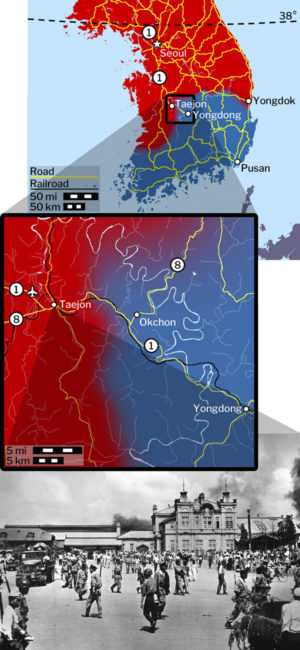 Jul 20: Korean War: Taejon falls. The final North Korean push to take Taejon (Daejeon) begins at 3:00 a.m., when they overrun forward positions west of the airstrip and penetrate the main line of resistance. By 4:00 a.m., the North Koreans have pushed to the road junction just to the west of the city. At least five T-34 tanks enter Taejon at about daybreak, carrying snipers who quickly melt into the city, while the tanks themselves wreck carnage at key locations throughout Taejeon. Soon, what meager radio and landline communication that exists between American defensive positions are knocked out, making coordination between troops impossible. Major Gen. William F. Dean, commander of the U.S. 24th Infantry Division in Taejon, orders much of his staff, to evacuate to Okchon (Okcheon) and to the recently-established divisional headquarters at Yongdong (Yeongdong). Dean remains behind. With communications crippled, he joins the remaining elements of the 24th Infantry to direct the battle personally in house-to-house combat. At 2:00 p.m., Dean issues a general withdrawal order. At about the same time, a column of North Korean soldiers arrive at the southern approach to Taejon. At the same time, enemy troops begin to close in on the city from the north and west while other troops fan out to encircle the city to the east. Early U.S. convoys make it out of Taejon, but by the time the main convoy starts out at 6:00 p.m., it draws enemy sniper fire from throughout the burning city. Just outside the city, the convoy is halted by enemy machine gun and mortar fire. The Americans are forced to abandon and destroy their vehicles, and take to the hills for a fighting retreat on foot. Dean, who is fighting on the front lines with his men, goes missing. He will be later taken prisoner by the North Koreans, the highest-ranking American to be held as a POW in the entire Korean war. As small groups of soldiers begin re-assembling out of the mountains in friendly territory over the next several days, the full scale of the defeat will become apparent. Out of 3,933 U,S. soldiers engaged in Taejon on July 19, 48 are known dead, 228 are wounded, and 874 missing in action. Almost all of the last number are killed. Gen. MacArthur praises the “splendid delaying action against overwhelming odds.”
Jul 20: Korean War: Taejon falls. The final North Korean push to take Taejon (Daejeon) begins at 3:00 a.m., when they overrun forward positions west of the airstrip and penetrate the main line of resistance. By 4:00 a.m., the North Koreans have pushed to the road junction just to the west of the city. At least five T-34 tanks enter Taejon at about daybreak, carrying snipers who quickly melt into the city, while the tanks themselves wreck carnage at key locations throughout Taejeon. Soon, what meager radio and landline communication that exists between American defensive positions are knocked out, making coordination between troops impossible. Major Gen. William F. Dean, commander of the U.S. 24th Infantry Division in Taejon, orders much of his staff, to evacuate to Okchon (Okcheon) and to the recently-established divisional headquarters at Yongdong (Yeongdong). Dean remains behind. With communications crippled, he joins the remaining elements of the 24th Infantry to direct the battle personally in house-to-house combat. At 2:00 p.m., Dean issues a general withdrawal order. At about the same time, a column of North Korean soldiers arrive at the southern approach to Taejon. At the same time, enemy troops begin to close in on the city from the north and west while other troops fan out to encircle the city to the east. Early U.S. convoys make it out of Taejon, but by the time the main convoy starts out at 6:00 p.m., it draws enemy sniper fire from throughout the burning city. Just outside the city, the convoy is halted by enemy machine gun and mortar fire. The Americans are forced to abandon and destroy their vehicles, and take to the hills for a fighting retreat on foot. Dean, who is fighting on the front lines with his men, goes missing. He will be later taken prisoner by the North Koreans, the highest-ranking American to be held as a POW in the entire Korean war. As small groups of soldiers begin re-assembling out of the mountains in friendly territory over the next several days, the full scale of the defeat will become apparent. Out of 3,933 U,S. soldiers engaged in Taejon on July 19, 48 are known dead, 228 are wounded, and 874 missing in action. Almost all of the last number are killed. Gen. MacArthur praises the “splendid delaying action against overwhelming odds.”
![]() Jul 20: Senate opens acrimonious debate over Tydings Committee report. The full U.S. Senate takes up the Tydings Committee’s majority report of its investigations into Sen. Joseph McCarthy’s (R-WI) charges of Communists on the State Department. Longtime Senate observers say the debate is the most acrimonious in memory. Sen. Millard Tydings (D-MD), the subcommittee’s chair, accuses McCarthy of perjury. Republicans deploy a series of parliamentary moves to block the report. Each time, they are turned back by what the New York Times calls “the rarest of Senate phenomena — an unbroken party stand by the Democrats.” At one point, Republican leader Sen. Kenneth Wherry (R-NE) blasts a statement in the report attributed to himself, that McCarthy had “gone out on limb” and Republicans had to support him. Wherry says that statement is a lie. Tydings is ready, and offers to play the recording of Wherry on a portable phonograph set up on a table beside him. Wherry backs down. McCarthy, who is present the whole time, rises and says, “Today, Tydings tried to notify the Communists in Government that they are safe in their positions.” McCarthy also says that the Truman Administration “is dedicated to the task of protecting the traitors, Communists and fellow travelers in our Government.”
Jul 20: Senate opens acrimonious debate over Tydings Committee report. The full U.S. Senate takes up the Tydings Committee’s majority report of its investigations into Sen. Joseph McCarthy’s (R-WI) charges of Communists on the State Department. Longtime Senate observers say the debate is the most acrimonious in memory. Sen. Millard Tydings (D-MD), the subcommittee’s chair, accuses McCarthy of perjury. Republicans deploy a series of parliamentary moves to block the report. Each time, they are turned back by what the New York Times calls “the rarest of Senate phenomena — an unbroken party stand by the Democrats.” At one point, Republican leader Sen. Kenneth Wherry (R-NE) blasts a statement in the report attributed to himself, that McCarthy had “gone out on limb” and Republicans had to support him. Wherry says that statement is a lie. Tydings is ready, and offers to play the recording of Wherry on a portable phonograph set up on a table beside him. Wherry backs down. McCarthy, who is present the whole time, rises and says, “Today, Tydings tried to notify the Communists in Government that they are safe in their positions.” McCarthy also says that the Truman Administration “is dedicated to the task of protecting the traitors, Communists and fellow travelers in our Government.”
![]() Jul 20: Belgian “Royal Question” crisis: Parliament votes to allow exiled king’s return. The Belgian Parliament, very narrowly controlled by the Flanders-based Social Christian (Catholic) Party, votes to allow the controversial King Leopold III to return from exile. The vote takes place on the eve of Belgium’s Independence Day. To the Socialists and Liberals, the return of Leopold is anathema because of his surrender to Nazi Germany and his conduct during World War II. But to the Flemish, Leopold’s return is regarded as a hard-won political trophy, evidence of their long-awaited political ascendency over the more prosperous Walloons — even if their majority is by just two seats in each house of Parliament. Before the voting takes place, Socialist leader Paul-Henri Spaak warns that allowing Leopold to return will “give the signal for upheavals that will tear Belgium asunder.” He then announces that the entire Opposition will leave the chamber, to leave the Catholic party “to commit one of the most pitiful deeds in our history.” The remaining members of Parliament, sitting in a half-empty Chamber of Deputies, vote 198 to 0 to approve legislation authorizing Leopold’s return. For the next two weeks, much of the country will be convulsed by strikes and riots that threaten to tear Belgium apart in civil war.
Jul 20: Belgian “Royal Question” crisis: Parliament votes to allow exiled king’s return. The Belgian Parliament, very narrowly controlled by the Flanders-based Social Christian (Catholic) Party, votes to allow the controversial King Leopold III to return from exile. The vote takes place on the eve of Belgium’s Independence Day. To the Socialists and Liberals, the return of Leopold is anathema because of his surrender to Nazi Germany and his conduct during World War II. But to the Flemish, Leopold’s return is regarded as a hard-won political trophy, evidence of their long-awaited political ascendency over the more prosperous Walloons — even if their majority is by just two seats in each house of Parliament. Before the voting takes place, Socialist leader Paul-Henri Spaak warns that allowing Leopold to return will “give the signal for upheavals that will tear Belgium asunder.” He then announces that the entire Opposition will leave the chamber, to leave the Catholic party “to commit one of the most pitiful deeds in our history.” The remaining members of Parliament, sitting in a half-empty Chamber of Deputies, vote 198 to 0 to approve legislation authorizing Leopold’s return. For the next two weeks, much of the country will be convulsed by strikes and riots that threaten to tear Belgium apart in civil war.
▲Friday, July 21
![]()
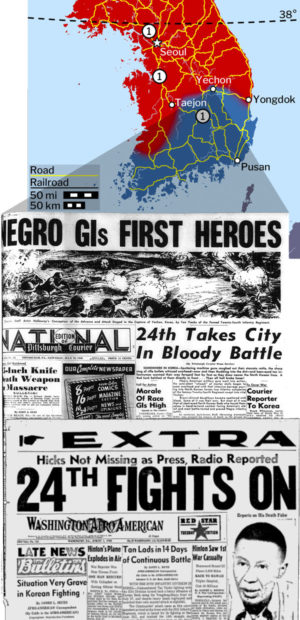 Jul 21: Korean War: Rare allied victory at Yechon. United Nations forces capture Yechon (Yecheon) following an artillery and mortar barrage that ignites much of the town. The 24th Infantry Regiment, an all-Negro unit of the 25th Infantry Division that has not yet been integrated, enters and secures the town while other forces try to put out the fires. Yechon is secured by 1:00 p.m. The U.S. Army takes little notice and credit the victory to the South Koreans in its official communiqué. But the U.S. press, especially the African-American press, note that the victory is the first fight won by black soldiers of a mostly black unit. This, however, will be a rare victory for the 24th. Poorly trained and poorly led by inexperienced white officers, the regiment’s overall unreliable performance will be cited as a reason to more quickly integrate the armed forces, a task which was not easy to do before the war. Others, however, point out that the inexperienced 24th Infantry Regiment performed about as well as other elements of the 25th Infantry Division, and that endemic racism allowed the 24th’s accomplishments to be ignored — as the army does in this day’s press communiqué — and its soldiers denied medals. The 24th Infantry will be fully desegregated a year later. Meanwhile back at Yechon, the Americans leave and turn over control to South Korean forces, who hold the vicinity for the rest of the month. On the west coast, North Korean forces continue to sweep southward with little to no opposition.
Jul 21: Korean War: Rare allied victory at Yechon. United Nations forces capture Yechon (Yecheon) following an artillery and mortar barrage that ignites much of the town. The 24th Infantry Regiment, an all-Negro unit of the 25th Infantry Division that has not yet been integrated, enters and secures the town while other forces try to put out the fires. Yechon is secured by 1:00 p.m. The U.S. Army takes little notice and credit the victory to the South Koreans in its official communiqué. But the U.S. press, especially the African-American press, note that the victory is the first fight won by black soldiers of a mostly black unit. This, however, will be a rare victory for the 24th. Poorly trained and poorly led by inexperienced white officers, the regiment’s overall unreliable performance will be cited as a reason to more quickly integrate the armed forces, a task which was not easy to do before the war. Others, however, point out that the inexperienced 24th Infantry Regiment performed about as well as other elements of the 25th Infantry Division, and that endemic racism allowed the 24th’s accomplishments to be ignored — as the army does in this day’s press communiqué — and its soldiers denied medals. The 24th Infantry will be fully desegregated a year later. Meanwhile back at Yechon, the Americans leave and turn over control to South Korean forces, who hold the vicinity for the rest of the month. On the west coast, North Korean forces continue to sweep southward with little to no opposition.
![]() Jul 21: Merchants report war-induced panic-buying. Fearing that the Korean War may bring back rationing, consumers have been panic-buying goods that were rationed or otherwise in short supply during World War II. Merchants across the country report a run on tires, sheets and pillowcases, towels, sugar, coffee, and shortening. Car manufacturers report a jump in new orders. Used cars — sales of which were tightly controlled during the previous war — see price increases thanks to increased demand. In just the past two week, retail sales jumped 15% in New York, 31% in Detroit, 35% in Los Angeles and Miami, 40% in Kansas City, 44% in Portland, Oregon, and 57% in San Diego. Department stores in New York City begin imposing limits on large orders. One woman tried to order sixty bed sheets, but the store employee talked her down to twelve.
Jul 21: Merchants report war-induced panic-buying. Fearing that the Korean War may bring back rationing, consumers have been panic-buying goods that were rationed or otherwise in short supply during World War II. Merchants across the country report a run on tires, sheets and pillowcases, towels, sugar, coffee, and shortening. Car manufacturers report a jump in new orders. Used cars — sales of which were tightly controlled during the previous war — see price increases thanks to increased demand. In just the past two week, retail sales jumped 15% in New York, 31% in Detroit, 35% in Los Angeles and Miami, 40% in Kansas City, 44% in Portland, Oregon, and 57% in San Diego. Department stores in New York City begin imposing limits on large orders. One woman tried to order sixty bed sheets, but the store employee talked her down to twelve.
![]() Jul 21:Belgian “Royal Question” crisis: Government calls out 11,000 gendarmes to bolster Brussels police. It’s Belgium’s Independence Day, and patriotic feelings are running high among both the Flemish and Walloons. The government has indicted that King Leopold III isn’t likely to return until tomorrow, but the Interior Ministry isn’t taking any chances. They have called out 11,000 national gendarmes from outside of Brussels to augment the city’s police force.
Jul 21:Belgian “Royal Question” crisis: Government calls out 11,000 gendarmes to bolster Brussels police. It’s Belgium’s Independence Day, and patriotic feelings are running high among both the Flemish and Walloons. The government has indicted that King Leopold III isn’t likely to return until tomorrow, but the Interior Ministry isn’t taking any chances. They have called out 11,000 national gendarmes from outside of Brussels to augment the city’s police force.
▲Saturday, July 22
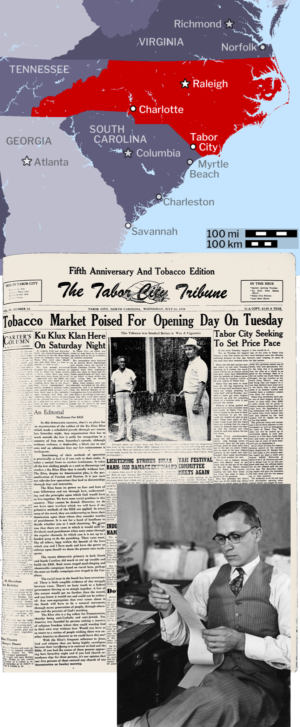 Jul 22: KKK parades through Tabor City. Next Wednesday’s issue of the weekly Tabor City Tribune will report: “At exactly 9:22 last Saturday night, the much discussed Southern Society of the Ku Klux Klan made an infamous tour through Tabor City with some 30-odd cars and with three to four occupants in each vehicle. The trek wound around through the colored sections as well as down the main streets of town, sirens blew and some blank shots were fired. All in all it appeared that the KKK was putting on some kind of a recruiting drive, but in the meantime they monopolized the streets, created a general confusion, caused many persons to believe there was a fire including some firemen, and then after gathering their forces departed in the general direction of Loris. It is said that the police department in that town escorted the parade through the city. In Tabor City, no effort was made to stop them or to encourage them and so far as is known no violence occurred. The marauders were believed to be largely South Carolinians and almost every car carried a South Carolina license. The occupants wore their traditional robes but most of them had their hoods pushed back off their face in an effort to keep within the law’s ruling that no hooded gangs may operate. Many local citizens were considerably disturbed by the demonstration…” The tiny Tabor City Tribune is owned by William Horace Carter, who is also the paper’s “editor-publisher-janitor and chief of everything else for the newspaper,” according to his 2009 obituary. In an accompanying editorial, Carter lays the blame on the recent Democratic primaries on North and South Carolina, which included South Carolina Gov. Strom Thurman’s losing bid for that state’s Senate seat. Carter writes, “The recent democratic primary in North and South Carolina did much to stir up trouble and build the KKK. Both states staged mud-slinging and abominable campaigns based on racial hate, perhaps the most un-Godly campaigns ever waged in the Carolinas.” The morning after the editorial appears, Carter will find a note on his car windshield calling him a “nigger-loving son of a bitch” and warning that the KKK “knows how to deal with trouble-makers like you.” The FBI will later reveal that Thomas Hamilton, Grand Dragon of the Association of Carolina Klans, was expressly invited to Tabor City by police chief L.R. Watson. Watson wrote that he “would be glad to have the opportunity to lead the parade through several places” he had in mind. This article and editorial will launch the paper’s courageous three-year campaign against Klan activities along the Carolina border. In 1953, the tiny Tribune will be honored with the first ever Pulitzer Prize to be awarded to a weekly newspaper.
Jul 22: KKK parades through Tabor City. Next Wednesday’s issue of the weekly Tabor City Tribune will report: “At exactly 9:22 last Saturday night, the much discussed Southern Society of the Ku Klux Klan made an infamous tour through Tabor City with some 30-odd cars and with three to four occupants in each vehicle. The trek wound around through the colored sections as well as down the main streets of town, sirens blew and some blank shots were fired. All in all it appeared that the KKK was putting on some kind of a recruiting drive, but in the meantime they monopolized the streets, created a general confusion, caused many persons to believe there was a fire including some firemen, and then after gathering their forces departed in the general direction of Loris. It is said that the police department in that town escorted the parade through the city. In Tabor City, no effort was made to stop them or to encourage them and so far as is known no violence occurred. The marauders were believed to be largely South Carolinians and almost every car carried a South Carolina license. The occupants wore their traditional robes but most of them had their hoods pushed back off their face in an effort to keep within the law’s ruling that no hooded gangs may operate. Many local citizens were considerably disturbed by the demonstration…” The tiny Tabor City Tribune is owned by William Horace Carter, who is also the paper’s “editor-publisher-janitor and chief of everything else for the newspaper,” according to his 2009 obituary. In an accompanying editorial, Carter lays the blame on the recent Democratic primaries on North and South Carolina, which included South Carolina Gov. Strom Thurman’s losing bid for that state’s Senate seat. Carter writes, “The recent democratic primary in North and South Carolina did much to stir up trouble and build the KKK. Both states staged mud-slinging and abominable campaigns based on racial hate, perhaps the most un-Godly campaigns ever waged in the Carolinas.” The morning after the editorial appears, Carter will find a note on his car windshield calling him a “nigger-loving son of a bitch” and warning that the KKK “knows how to deal with trouble-makers like you.” The FBI will later reveal that Thomas Hamilton, Grand Dragon of the Association of Carolina Klans, was expressly invited to Tabor City by police chief L.R. Watson. Watson wrote that he “would be glad to have the opportunity to lead the parade through several places” he had in mind. This article and editorial will launch the paper’s courageous three-year campaign against Klan activities along the Carolina border. In 1953, the tiny Tribune will be honored with the first ever Pulitzer Prize to be awarded to a weekly newspaper.![]()
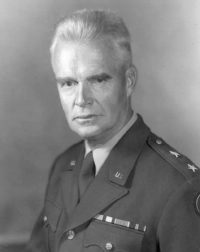 Jul 22: Korean War: U.S. Army officially lists Maj. Gen. William F. Dean as missing in action. According to the Defense Department, the fighting commander of the 24th Division in Korea was last seen two days ago passing ammunition to a bazooka team as North Korean tanks rumbled only yards away in Taejon (Daejeon). A message to the Pentagon from Gen. Douglas MacArthur says that “high hopes exist that he will return with one of the groups of separated personnel frequently returning to their units. … It is still hoped that this gallant officer, if alive, has not fallen into enemy hands.” Eighteen-year-old Pvt. Alfred Wessels of Stanton, Texas, was one of the last to see him in Taejon. Wessels says he watched Dean out-duel an enemy automatic rifleman with a .45-caliber pistol. “And, brother, that’s shooting.” He also says that Gen. Dean had helped knock out a Communist tank with a 3.5-inch (90 mm) rocket launcher before he ordered the men around him to pull back. In fact, Dean will soon be taken prisoner by the North Koreans, making him the highest-ranking American to be held as a POW in the entire Korean war.
Jul 22: Korean War: U.S. Army officially lists Maj. Gen. William F. Dean as missing in action. According to the Defense Department, the fighting commander of the 24th Division in Korea was last seen two days ago passing ammunition to a bazooka team as North Korean tanks rumbled only yards away in Taejon (Daejeon). A message to the Pentagon from Gen. Douglas MacArthur says that “high hopes exist that he will return with one of the groups of separated personnel frequently returning to their units. … It is still hoped that this gallant officer, if alive, has not fallen into enemy hands.” Eighteen-year-old Pvt. Alfred Wessels of Stanton, Texas, was one of the last to see him in Taejon. Wessels says he watched Dean out-duel an enemy automatic rifleman with a .45-caliber pistol. “And, brother, that’s shooting.” He also says that Gen. Dean had helped knock out a Communist tank with a 3.5-inch (90 mm) rocket launcher before he ordered the men around him to pull back. In fact, Dean will soon be taken prisoner by the North Koreans, making him the highest-ranking American to be held as a POW in the entire Korean war.
![]()
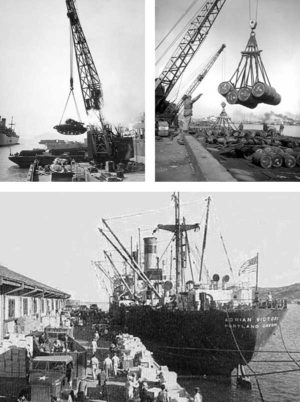 Jul 22: Pentagon says original six-month estimate for the Korean War not possible. As fighting in Korea is about to begin its second month, the U.S. Defense Department concedes that its original six-month estimate to resolve the war in Korea is no longer tenable. An unnamed high level official says that it might be mid-fall or even next spring before enough troops and material arrive on the Korean peninsula to begin a full-scale offensive. A general familiar with logistics points out that under ideal conditions, at least forty-four days are needed to alert a unit of division strength and transport it to Korea with all of its equipment (especially heavy armored tanks and other vehicles), rations, ammunition, and support personnel. General Motors, which has been awarded a contract to build tanks, says it may be nine months before the first tank rolls out of the plant.
Jul 22: Pentagon says original six-month estimate for the Korean War not possible. As fighting in Korea is about to begin its second month, the U.S. Defense Department concedes that its original six-month estimate to resolve the war in Korea is no longer tenable. An unnamed high level official says that it might be mid-fall or even next spring before enough troops and material arrive on the Korean peninsula to begin a full-scale offensive. A general familiar with logistics points out that under ideal conditions, at least forty-four days are needed to alert a unit of division strength and transport it to Korea with all of its equipment (especially heavy armored tanks and other vehicles), rations, ammunition, and support personnel. General Motors, which has been awarded a contract to build tanks, says it may be nine months before the first tank rolls out of the plant.
![]()
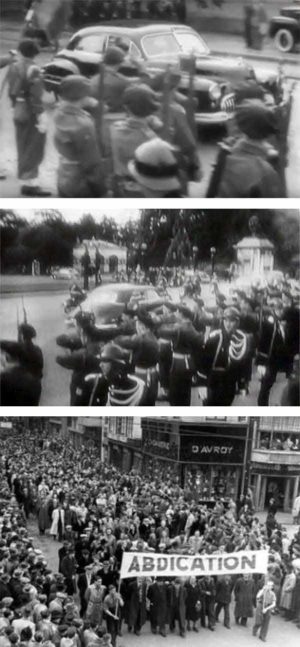 Jul 22: Belgian “Royal Question” crisis: King Leopold III returns from exile. With no advance announcement of the king’s return, he is swiftly whisked to the Royal Castle of Laeken amid tight security. His supporters, drawn mostly from the more conservative, rural, Dutch-speaking provinces of Flanders are jubilant. But his Socialist opponents in industrialized, French-speaking Wallonia march through Brussels shouting “Abdication!” Five hours after his arrival, Leopold addresses the nation via radio. He calls for unity, but he is silent on the current political crisis and makes no mention of his April offer to “temporarily” step aside in favor of his son, Crown Prince Baudouin. He also does not address Walloons’ anger over his 1940 decision to surrender to the Nazis instead of joining his government in exile and continuing the fight against German invaders. But he does say that he “pardons” his opponents, which only infuriates Walloons further. At city halls in Liège and other Walloon cities, the national flag is flown at half staff. Trade unions in Wallonia are expected to launch a series of strikes on Monday and Tuesday, when workers would normally return following the Independence Day holiday weekend.
Jul 22: Belgian “Royal Question” crisis: King Leopold III returns from exile. With no advance announcement of the king’s return, he is swiftly whisked to the Royal Castle of Laeken amid tight security. His supporters, drawn mostly from the more conservative, rural, Dutch-speaking provinces of Flanders are jubilant. But his Socialist opponents in industrialized, French-speaking Wallonia march through Brussels shouting “Abdication!” Five hours after his arrival, Leopold addresses the nation via radio. He calls for unity, but he is silent on the current political crisis and makes no mention of his April offer to “temporarily” step aside in favor of his son, Crown Prince Baudouin. He also does not address Walloons’ anger over his 1940 decision to surrender to the Nazis instead of joining his government in exile and continuing the fight against German invaders. But he does say that he “pardons” his opponents, which only infuriates Walloons further. At city halls in Liège and other Walloon cities, the national flag is flown at half staff. Trade unions in Wallonia are expected to launch a series of strikes on Monday and Tuesday, when workers would normally return following the Independence Day holiday weekend.
![]()
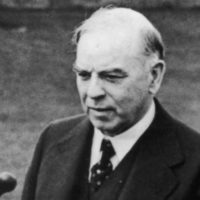 Jul 22: Former Canada PM dies. Former Canadian Prime minister Mackenzie King dies at his country home near Ottawa at the age of seventy-six. Before retiring from office in 1948, he had been Prime Minister for a total of twenty-one years and five months, the longest of any other statesman in the history of the British Commonwealth.
Jul 22: Former Canada PM dies. Former Canadian Prime minister Mackenzie King dies at his country home near Ottawa at the age of seventy-six. Before retiring from office in 1948, he had been Prime Minister for a total of twenty-one years and five months, the longest of any other statesman in the history of the British Commonwealth.
![]() Jul 22: Panic buying causes massive backorders for new automobiles. American automakers say that panic buying has caused backorders of even the less popular and more expensive cars to soar since the start of the Korean War. The backlog has grown despite weeks of record-breaking production. Ford Motor Company says that on June 10, Ford, Lincoln and Mercury dealers had orders on hand for 140,000 cars and trucks. A month later, despite record output, that number stands at 175,000. Ford estimates today that the backlog is about 200,000. Prices for used post-war cars are also rising $200 (about $2,200 today) or more. “It’s care buying, all right,” says one unidentified spokesman. “If the Korean situation were to end abruptly, most of these ‘pressure orders’ would be canceled with it. But right now, it looks like each additional day of the war adds two are three days to the backlog of orders.” Steel mills are already running at full capacity, and automakers fear that increased military production may limit the amount of steel available for civilian purposes.
Jul 22: Panic buying causes massive backorders for new automobiles. American automakers say that panic buying has caused backorders of even the less popular and more expensive cars to soar since the start of the Korean War. The backlog has grown despite weeks of record-breaking production. Ford Motor Company says that on June 10, Ford, Lincoln and Mercury dealers had orders on hand for 140,000 cars and trucks. A month later, despite record output, that number stands at 175,000. Ford estimates today that the backlog is about 200,000. Prices for used post-war cars are also rising $200 (about $2,200 today) or more. “It’s care buying, all right,” says one unidentified spokesman. “If the Korean situation were to end abruptly, most of these ‘pressure orders’ would be canceled with it. But right now, it looks like each additional day of the war adds two are three days to the backlog of orders.” Steel mills are already running at full capacity, and automakers fear that increased military production may limit the amount of steel available for civilian purposes.
▲Sunday, July 23
![]()
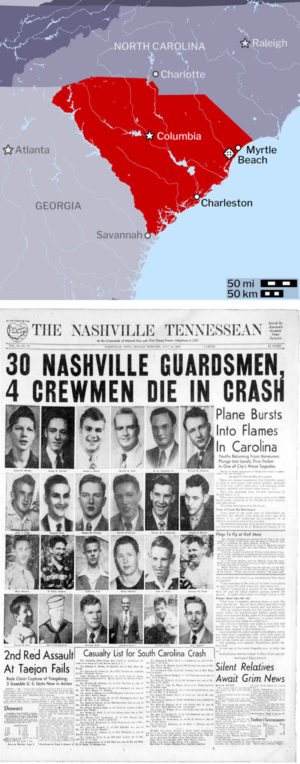 Jul 23: Transport plane crash kills 35. An Air Force C-46 troop transport plane carrying 35 Tennessee Air National Guardsmen crashes near Myrtle Beach, South Carolina, shortly after takeoff at 11:22 a.m. The plane explodes into flames when it hits the ground, killing all on board along with its crew of four. The Guardsmen had just completed two weeks of training and are returning to Nashville when the twin-engined aircraft develops engine trouble shortly after takeoff from Myrtle Beach. A farmer say he was standing in the yard when the plane flew overhead. “While I looked at it, a piece of the tail suddenly flew off and the plane started spinning toward the ground. It made about three revolutions before it hit. And then it exploded, shooting flames a great distance into the air.” People hear the crash from twenty miles around and hundreds rush to the scene, including an entire congregation of a rural church. The C-46 is part of a nine-plane airlift shuttling between Myrtle Beach and Nashville to take the Guard home. An investigation will reveal that the left aileron detached shortly after takeoff, making the plane uncontrollable.
Jul 23: Transport plane crash kills 35. An Air Force C-46 troop transport plane carrying 35 Tennessee Air National Guardsmen crashes near Myrtle Beach, South Carolina, shortly after takeoff at 11:22 a.m. The plane explodes into flames when it hits the ground, killing all on board along with its crew of four. The Guardsmen had just completed two weeks of training and are returning to Nashville when the twin-engined aircraft develops engine trouble shortly after takeoff from Myrtle Beach. A farmer say he was standing in the yard when the plane flew overhead. “While I looked at it, a piece of the tail suddenly flew off and the plane started spinning toward the ground. It made about three revolutions before it hit. And then it exploded, shooting flames a great distance into the air.” People hear the crash from twenty miles around and hundreds rush to the scene, including an entire congregation of a rural church. The C-46 is part of a nine-plane airlift shuttling between Myrtle Beach and Nashville to take the Guard home. An investigation will reveal that the left aileron detached shortly after takeoff, making the plane uncontrollable.
▲Monday, July 24
![]() Jul 24: Truman asks for increased military funding. President Truman asks Congress for $10.5 billion (about $115 billion today) to increase the armed forces to 600,000 men and purchase vast new quantities of tanks, planes, aircraft guns, ships and munitions. Almost half of the appropriation would go to the Air Force.
Jul 24: Truman asks for increased military funding. President Truman asks Congress for $10.5 billion (about $115 billion today) to increase the armed forces to 600,000 men and purchase vast new quantities of tanks, planes, aircraft guns, ships and munitions. Almost half of the appropriation would go to the Air Force.
![]()
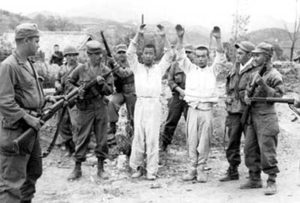 Jul 24: U.S. Army Division orders firing on “refugees” crossing front lines. Responding to increased guerrilla activity by North Korean troops disguising themselves as farmers and refugees, the 1st Cavalry Division headquarters in Korea issues an order that will have devastating consequences two days later. The order reads: “No refugees to cross the front line. Fire everyone trying to cross lines. Use discretion in case of women and children.”
Jul 24: U.S. Army Division orders firing on “refugees” crossing front lines. Responding to increased guerrilla activity by North Korean troops disguising themselves as farmers and refugees, the 1st Cavalry Division headquarters in Korea issues an order that will have devastating consequences two days later. The order reads: “No refugees to cross the front line. Fire everyone trying to cross lines. Use discretion in case of women and children.”
![]() Jul 24:Belgian “Royal Question” crisis: Strikes break out in Wallonia. Workers in Belgium’s industrialized Walloon provinces begin a wave of strikes to protest King Leopold III’s return from exile. A Socialist party spokesman says that because they expect the abdication fight to be a long one, they are starting out with small strikes that will build over time.
Jul 24:Belgian “Royal Question” crisis: Strikes break out in Wallonia. Workers in Belgium’s industrialized Walloon provinces begin a wave of strikes to protest King Leopold III’s return from exile. A Socialist party spokesman says that because they expect the abdication fight to be a long one, they are starting out with small strikes that will build over time.
▲Tuesday, July 25
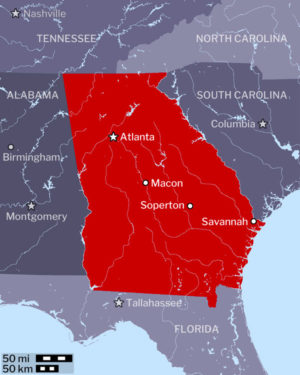 Jul 25: KKK flogs Black man accused of making moonshine. Four carloads of masked and white-robed men descend on the home of 48-year-old Will Robinson near Soperton, Georgia. They call the African-American man out of the home, and take him away at gunpoint into the woods, where they tie him to a tree and lash him for about fifteen minutes. They accuse him of stealing turpentine barrels to use as a still for making whiskey. After he is beaten, they fire into the air about three for four times and tell him to get out of the county by Saturday. This is the second known Klan flogging this month in Treulten County. On July 9, five men carried off a while man, Fred Howard Mixon, 22, at gunpoint and whipped him for being a drunk. He was also warned to leave the county or he would be killed. Mixon fled to Savannah. Sheriff George Barwick says he has heard that two other white men have been flogged, but no warrants have been sworn out.
Jul 25: KKK flogs Black man accused of making moonshine. Four carloads of masked and white-robed men descend on the home of 48-year-old Will Robinson near Soperton, Georgia. They call the African-American man out of the home, and take him away at gunpoint into the woods, where they tie him to a tree and lash him for about fifteen minutes. They accuse him of stealing turpentine barrels to use as a still for making whiskey. After he is beaten, they fire into the air about three for four times and tell him to get out of the county by Saturday. This is the second known Klan flogging this month in Treulten County. On July 9, five men carried off a while man, Fred Howard Mixon, 22, at gunpoint and whipped him for being a drunk. He was also warned to leave the county or he would be killed. Mixon fled to Savannah. Sheriff George Barwick says he has heard that two other white men have been flogged, but no warrants have been sworn out.![]()
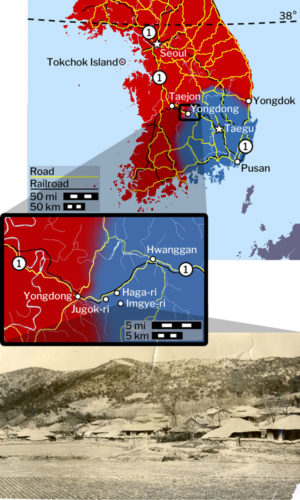 Jul 25: Korean War: US forces plagued by North Korean guerrillas. North Korean forces face only token opposition as they sweep through the southwestern coast. The fiercest fighting takes place along the line from Yongdong (Yeongdong) northeastward and then eastward to the coast. That line has held steady mostly despite three days of intense battle. Guerrilla action is also intense, especially behind American lines on the principal highway from Taejon (Daejeon) to Taegu (Daegu), which news reports are just now beginning to identify as the temporary capital of South Korea. The day before, U.S. soldiers in the mountains west of of Yongdong discover a suspicious refugee woman who appears pregnant. They discover that she’s actually hiding a radio that is used to communicate U.S. and South Korean troops strengths and positions to the North Korean army. The New York Times says the fighting is “similar to that used by the Japanese on the Pacific islands — against enemy guile and unorthodox use of protective coloration. In this case the Communists’ coloration consists simply of casting aside their identifying uniforms and showing up behind the lines as refugees or local peasants. Lieut. Gen. Walton H. Walker, commanding the United States Eight Army, said recently measures being taken to curb this tactic were meeting a high degree of success.” Among the measures are orders allowing refugee movement during daylight hours and only along designated routes. Nevertheless, enemy forces have so thoroughly infiltrated the positions held by the 1st Cavalry Division at Yongdong (Yeungdon) that it is forced to withdraw. Before they leave the area, they send a truck to Imgye-ri. About 600 villagers, including large numbers who were forced to evacuate Jugok-ri, are ordered to evacuate. U.S. soldiers accompany the villagers — now refugees — to Haga-ri, where they are ordered to spend the night.
Jul 25: Korean War: US forces plagued by North Korean guerrillas. North Korean forces face only token opposition as they sweep through the southwestern coast. The fiercest fighting takes place along the line from Yongdong (Yeongdong) northeastward and then eastward to the coast. That line has held steady mostly despite three days of intense battle. Guerrilla action is also intense, especially behind American lines on the principal highway from Taejon (Daejeon) to Taegu (Daegu), which news reports are just now beginning to identify as the temporary capital of South Korea. The day before, U.S. soldiers in the mountains west of of Yongdong discover a suspicious refugee woman who appears pregnant. They discover that she’s actually hiding a radio that is used to communicate U.S. and South Korean troops strengths and positions to the North Korean army. The New York Times says the fighting is “similar to that used by the Japanese on the Pacific islands — against enemy guile and unorthodox use of protective coloration. In this case the Communists’ coloration consists simply of casting aside their identifying uniforms and showing up behind the lines as refugees or local peasants. Lieut. Gen. Walton H. Walker, commanding the United States Eight Army, said recently measures being taken to curb this tactic were meeting a high degree of success.” Among the measures are orders allowing refugee movement during daylight hours and only along designated routes. Nevertheless, enemy forces have so thoroughly infiltrated the positions held by the 1st Cavalry Division at Yongdong (Yeungdon) that it is forced to withdraw. Before they leave the area, they send a truck to Imgye-ri. About 600 villagers, including large numbers who were forced to evacuate Jugok-ri, are ordered to evacuate. U.S. soldiers accompany the villagers — now refugees — to Haga-ri, where they are ordered to spend the night.
![]()
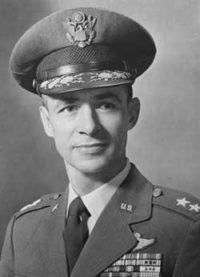 Jul 25: Air Force colonel seeks clarification on strafing orders. U.S. Air Force Col. Turner Rogers writes to Lt. Gen. Edward Timberlake seeking guidance on Army requests “in regard to strafing of civilian refugees on the highways.” Rogers writes, “It is reported that large groups of civilians, either composed of or controlled by North Korean soldiers, are infiltrating U.S. positions. The army has requested that we strafe all civilian refugee parties that are noted approaching our positions. To date, we have complied with the army request in this respect. Our operations involving the strafing of civilians is (sic) sure to receive wide publicity and may cause embarrassment to the U.S. Air Force and to the U.S. government … It is not understood why the army is not screening such personnel or shooting them as they come through if they desire such action. Further it is felt that more suitable targets are available … which would be more value to the army in the long run.”
Jul 25: Air Force colonel seeks clarification on strafing orders. U.S. Air Force Col. Turner Rogers writes to Lt. Gen. Edward Timberlake seeking guidance on Army requests “in regard to strafing of civilian refugees on the highways.” Rogers writes, “It is reported that large groups of civilians, either composed of or controlled by North Korean soldiers, are infiltrating U.S. positions. The army has requested that we strafe all civilian refugee parties that are noted approaching our positions. To date, we have complied with the army request in this respect. Our operations involving the strafing of civilians is (sic) sure to receive wide publicity and may cause embarrassment to the U.S. Air Force and to the U.S. government … It is not understood why the army is not screening such personnel or shooting them as they come through if they desire such action. Further it is felt that more suitable targets are available … which would be more value to the army in the long run.”
![]()
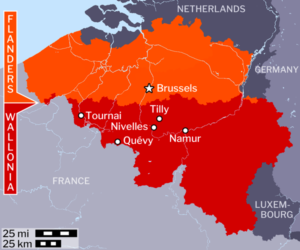 Jul 25: Belgian “Royal Question” crisis: Bombings, sabotage mark growing protests against Leopold III. Belgium’s Interior Ministry counts forty-eight acts of sabotage overnight and today. A wave of bombings along railroad tracks and electrical lines hamper train traffic through most of the heavily industrialized Walloon provinces. Several bombs explode at a rail station in Quévy on the main Brussels-Paris line. Railway signal wires are cut near Namur, Tilly, and Tournai. And nails strewn on the main highway near Nivelles flatten tires on 63 vehicles, mostly heavy trucks.
Jul 25: Belgian “Royal Question” crisis: Bombings, sabotage mark growing protests against Leopold III. Belgium’s Interior Ministry counts forty-eight acts of sabotage overnight and today. A wave of bombings along railroad tracks and electrical lines hamper train traffic through most of the heavily industrialized Walloon provinces. Several bombs explode at a rail station in Quévy on the main Brussels-Paris line. Railway signal wires are cut near Namur, Tilly, and Tournai. And nails strewn on the main highway near Nivelles flatten tires on 63 vehicles, mostly heavy trucks.
▲Wednesday, July 26
![]()
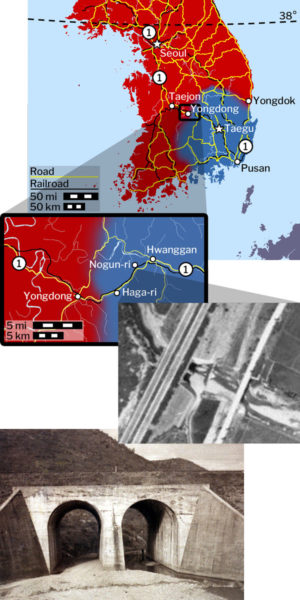 Jul 26: Korean War: Nogun-ri massacre begins. A massacre of fleeing South Korean refugees by U.S. soldiers begins near the tiny hamlet of Nogun-ri (Nugeun-ri). The day before, American troops evacuated about 600 nearby villagers, consisting almost entirely of women, children and old men. The soldiers escorted the refugees to Haga-ri, where the villagers were ordered to spend the night. Sometime during the night, the troop escort left. So when morning came, the refugees started walking toward Hwanggan unescorted. At Nogun-ri, which is now only about four miles from the advancing front, the refugees encounter an American roadblock, where they are ordered onto the railroad tracks parallel to the road. American soldiers search them and their belongings, confiscating knives and a few other items, but finding no evidence that any KPA soldiers have infiltrated the group. Afterwards, while the refugees are resting along the railroad embankment, U.S. aircraft strafe and bomb them. Survivors seek shelter in a concrete double tunnel under a railroad bridge, where they come under heavy American machine gun and rifle fire from both sides of the bridge. It will later emerge that American soldiers are authorized to shoot the refugees. One rifleman will later recall, “It was assumed there were enemy in these people.” Some Americans hold their fire, but others continue shooting throughout the rest of the day while survivors pile up bodies as barricades. Occasional firing will continue through the night with U.S. troops beaming searchlights into the tunnels. The refugees will remain trapped under the bridge for the next four days, with American soldiers picking off anyone they see moving. The rest of the world won’t learn about the Nogun-ri Massacre until 1999.
Jul 26: Korean War: Nogun-ri massacre begins. A massacre of fleeing South Korean refugees by U.S. soldiers begins near the tiny hamlet of Nogun-ri (Nugeun-ri). The day before, American troops evacuated about 600 nearby villagers, consisting almost entirely of women, children and old men. The soldiers escorted the refugees to Haga-ri, where the villagers were ordered to spend the night. Sometime during the night, the troop escort left. So when morning came, the refugees started walking toward Hwanggan unescorted. At Nogun-ri, which is now only about four miles from the advancing front, the refugees encounter an American roadblock, where they are ordered onto the railroad tracks parallel to the road. American soldiers search them and their belongings, confiscating knives and a few other items, but finding no evidence that any KPA soldiers have infiltrated the group. Afterwards, while the refugees are resting along the railroad embankment, U.S. aircraft strafe and bomb them. Survivors seek shelter in a concrete double tunnel under a railroad bridge, where they come under heavy American machine gun and rifle fire from both sides of the bridge. It will later emerge that American soldiers are authorized to shoot the refugees. One rifleman will later recall, “It was assumed there were enemy in these people.” Some Americans hold their fire, but others continue shooting throughout the rest of the day while survivors pile up bodies as barricades. Occasional firing will continue through the night with U.S. troops beaming searchlights into the tunnels. The refugees will remain trapped under the bridge for the next four days, with American soldiers picking off anyone they see moving. The rest of the world won’t learn about the Nogun-ri Massacre until 1999.
![]()
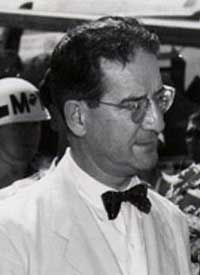 Jul 26: Korean War: U.S. Ambassador reports on North Korean guerrillas posing as refugees. U.S. Ambassador to Korea John J. Muccio sends a memo to Assistant Secretary of State Dean Rusk. Muccio reports on a meeting involving embassy personnel and top U.S. military staff the night before. “The enemy has used refugees to his advantage in many ways: by forcing them south and so clogging the roads as to interfere with military movements; by using them as a channel for infiltration of agents; and most dangerous of all by disguising their own troops as refugees, who after passing through our lines proceed, after dark, to produce hidden weapons, and then attack our units from the rear. … Such infiltrations had a considerable part in the defeat of the 24th Division at Taejon. Naturally, the Army is determined to end this threat. Yesterday evening a meeting was arranged … (and) the following decisions were made: Leaflet drops will be made north of US lines warning the people not to proceed south, that they risk being fired upon if they do so. If refugees do appear from north of U.S. lines they will receive warning shots, and if they then persist in advancing they will be shot.”
Jul 26: Korean War: U.S. Ambassador reports on North Korean guerrillas posing as refugees. U.S. Ambassador to Korea John J. Muccio sends a memo to Assistant Secretary of State Dean Rusk. Muccio reports on a meeting involving embassy personnel and top U.S. military staff the night before. “The enemy has used refugees to his advantage in many ways: by forcing them south and so clogging the roads as to interfere with military movements; by using them as a channel for infiltration of agents; and most dangerous of all by disguising their own troops as refugees, who after passing through our lines proceed, after dark, to produce hidden weapons, and then attack our units from the rear. … Such infiltrations had a considerable part in the defeat of the 24th Division at Taejon. Naturally, the Army is determined to end this threat. Yesterday evening a meeting was arranged … (and) the following decisions were made: Leaflet drops will be made north of US lines warning the people not to proceed south, that they risk being fired upon if they do so. If refugees do appear from north of U.S. lines they will receive warning shots, and if they then persist in advancing they will be shot.”
![]() Jul 26: Four countries to join Korean fight. Britain, Australia, New Zealand and Turkey announce that they will put ground troops under United Nations command to fight alongside American and South Korean soldiers in Korea. They join Thailand who announced on Monday that they will send combat troops to Korea. Naval assistance is already being provided by Australia, Britain, Canada, the Netherlands, and New Zealand. Australia and Britain are also participating in air combat operations.
Jul 26: Four countries to join Korean fight. Britain, Australia, New Zealand and Turkey announce that they will put ground troops under United Nations command to fight alongside American and South Korean soldiers in Korea. They join Thailand who announced on Monday that they will send combat troops to Korea. Naval assistance is already being provided by Australia, Britain, Canada, the Netherlands, and New Zealand. Australia and Britain are also participating in air combat operations.
![]()
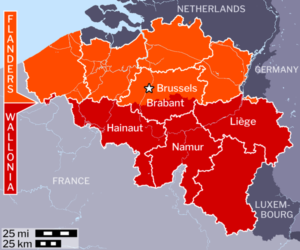 Jul 26: Belgian “Royal Question” crisis: Walloon heavy industries idled by general strike. All heavy industries in the Walloon provinces of Liège and Hainaut are idled by strikes in protest of Belgian King Leopold III’s return from exile. Striking workers are even refusing to keep the blast furnace fires going, or man the pumps to keep the coal mines from flooding. There have been scores of acts of railroad sabotage since Monday.
Jul 26: Belgian “Royal Question” crisis: Walloon heavy industries idled by general strike. All heavy industries in the Walloon provinces of Liège and Hainaut are idled by strikes in protest of Belgian King Leopold III’s return from exile. Striking workers are even refusing to keep the blast furnace fires going, or man the pumps to keep the coal mines from flooding. There have been scores of acts of railroad sabotage since Monday.
▲Thursday, July 27
![]() Jul 27: President Truman firmly denies that he is considering using an atomic bomb in Korea. There has been growing speculation in the press that Truman might be weighing that option, although top strategists have said that there aren’t any worthwhile targets in North Korea for such a weapon. The Department of Defense instead focuses on increasing its manpower. The Army increases its draft call to 100,000, while President Truman issues an executive order that extends the enlistments of all those now in the armed services by a year. It is believed that these measures are in response to disappointing results from the call for volunteers.
Jul 27: President Truman firmly denies that he is considering using an atomic bomb in Korea. There has been growing speculation in the press that Truman might be weighing that option, although top strategists have said that there aren’t any worthwhile targets in North Korea for such a weapon. The Department of Defense instead focuses on increasing its manpower. The Army increases its draft call to 100,000, while President Truman issues an executive order that extends the enlistments of all those now in the armed services by a year. It is believed that these measures are in response to disappointing results from the call for volunteers.
![]()
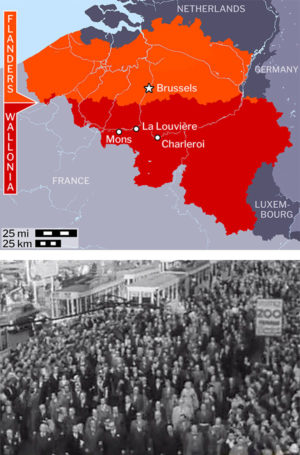 Jul 27: Belgian “Royal Question” crisis: Opposition leader warns of “the beginning of a revolution.” Former Socialist Premier Paul Henri Spaak warns the Chamber of Deputies that the strikes paralyzing half the nation “will be the beginning of a revolution.” Says Spaak, “I warned you before the advisory referendum that a vote in the King’s return would split the nation. I had asked what the Government expected the Socialists to do to create an atmosphere conducive to compromise. We suggested before all this trouble started to go back to the King’s message and work out a compromise. But you rejected our proposal. All the workers see that our opposition in Parliament is not getting them anywhere, so they have taken the initiative into their own hands. … Revolutions always break out when men in power refuse to recognize the facts.” Spaak then steps outside and greets thousands of supporters, some waving pictures of Leopold’s 1940 meeting with Hitler. “To Laeken!,” says Spaak. “We shall meet Leopold on his own doorstep if he dares to appear.” The march is stopped by mounted police about a hundred yards (100 m) from Laeken Castle’s gates. Fighting breaks out and quickly spreads through the streets of Brussels. By the time the fray ends, one car is set on fire, a busload of Leopold supporters from Ghent is overturned, and the streets are littered with broken pavement, glass, flowers, flags and portraits of the King. Strikes continue to spread through the Walloon provinces, with half a million workers out in the industrial cities of Mons, La Louvière, and Charleroi. Industry in Liège is completely shut down and the city is paralyzed.
Jul 27: Belgian “Royal Question” crisis: Opposition leader warns of “the beginning of a revolution.” Former Socialist Premier Paul Henri Spaak warns the Chamber of Deputies that the strikes paralyzing half the nation “will be the beginning of a revolution.” Says Spaak, “I warned you before the advisory referendum that a vote in the King’s return would split the nation. I had asked what the Government expected the Socialists to do to create an atmosphere conducive to compromise. We suggested before all this trouble started to go back to the King’s message and work out a compromise. But you rejected our proposal. All the workers see that our opposition in Parliament is not getting them anywhere, so they have taken the initiative into their own hands. … Revolutions always break out when men in power refuse to recognize the facts.” Spaak then steps outside and greets thousands of supporters, some waving pictures of Leopold’s 1940 meeting with Hitler. “To Laeken!,” says Spaak. “We shall meet Leopold on his own doorstep if he dares to appear.” The march is stopped by mounted police about a hundred yards (100 m) from Laeken Castle’s gates. Fighting breaks out and quickly spreads through the streets of Brussels. By the time the fray ends, one car is set on fire, a busload of Leopold supporters from Ghent is overturned, and the streets are littered with broken pavement, glass, flowers, flags and portraits of the King. Strikes continue to spread through the Walloon provinces, with half a million workers out in the industrial cities of Mons, La Louvière, and Charleroi. Industry in Liège is completely shut down and the city is paralyzed.
▲Friday, July 28
![]()
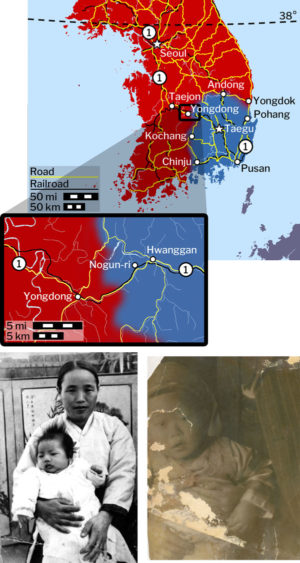 Jul 28: Korean War: Enemy advances on all fronts. The line at the northwest corner of the front front yields slightly to North Korean onslaughts near Andong in an apparent Communist drive toward Taegu (Daegu), a vital crossroads in South Korea’s rail network. On the south coast, the North Koreans advance eastward toward Chinju (Jinju), which is within fifty miles (80 km) of the vital port of Pusan (Busan). The KPA also approach Kochang (Geochang) on the western front, and threaten to surround American forces a few miles east of Yongdong (Yeongdong). But at Yongdok (Yeungdeok), South Korean forces succeed in blocking a North Korean drive down the coast to Pohang.
Jul 28: Korean War: Enemy advances on all fronts. The line at the northwest corner of the front front yields slightly to North Korean onslaughts near Andong in an apparent Communist drive toward Taegu (Daegu), a vital crossroads in South Korea’s rail network. On the south coast, the North Koreans advance eastward toward Chinju (Jinju), which is within fifty miles (80 km) of the vital port of Pusan (Busan). The KPA also approach Kochang (Geochang) on the western front, and threaten to surround American forces a few miles east of Yongdong (Yeongdong). But at Yongdok (Yeungdeok), South Korean forces succeed in blocking a North Korean drive down the coast to Pohang.
![]() Jul 28: Korean War: Nogun-ri massacre continues. Surviving Korean refugees at Nogun-ri (Nugeun-ri) are still huddled under a railroad bridge while American troops, occupying positions set up to try to stop advancing North Korean forces, take potshots at the bridge whenever they see movement. Thirsty survivors resort to drinking blood-filled water from a small stream that runs under the bridge. The front is now just two miles 3¼ km) from Nogun-ri, and the Americans are coming under sporadic mortar and artillery fire. That night, the 7th Cavalry reports to division headquarters: “No important contact has been reported by our 2nd Battalion.” No mention is ever made of the refugee killings in official reports.
Jul 28: Korean War: Nogun-ri massacre continues. Surviving Korean refugees at Nogun-ri (Nugeun-ri) are still huddled under a railroad bridge while American troops, occupying positions set up to try to stop advancing North Korean forces, take potshots at the bridge whenever they see movement. Thirsty survivors resort to drinking blood-filled water from a small stream that runs under the bridge. The front is now just two miles 3¼ km) from Nogun-ri, and the Americans are coming under sporadic mortar and artillery fire. That night, the 7th Cavalry reports to division headquarters: “No important contact has been reported by our 2nd Battalion.” No mention is ever made of the refugee killings in official reports.
![]()
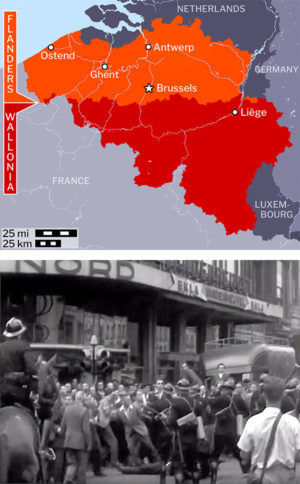 Jul 28: Belgian “Royal Question” crisis: Unrest grows, ruling party splits on compromise. Some members of Belgium’s ruling pro-Leopoldist party, the Social Christian (Catholic) Party, hint at compromise for the first time since the crisis began. But others in the party insist that they must not be bullied by the opposition’s “sabotage and insurrection.” The government’s anxiety becomes apparent when the Defense Ministry recalls Belgian occupation troops from West Germany. When they arrive in Brussels, protesters mock them with Nazi salutes. Throughout the day, the Cabinet meets in emergency sessions, and Prime Minister Jean Davieusart addresses the nation that evening to say that the King is consulting with leaders of various parties on possible conciliation steps. But Socialist Party leader Max Buset refuses to meet the King, and says he won’t do so unless it’s to discuss the King’s abdication in favor of Crown Prince Baudouin. Meanwhile, the streets of Brussels are the scenes of uninterrupted protests all day long, with 400 businesses downtown shut down tight by noon. Streetcars are halted and attacked, three taxis are overturned, and the city center is under siege. Major cities throughout the French-speaking, highly-industrialized Walloon provinces are paralyzed by general strikes. Blast furnaces are extinguished, coal mines are flooded, and the railways around Liège are gridlocked. There are even strikes in Flanders, where Leopold’s support is the strongest. In Antwerp, 25,000 ship workers have left their jobs, longshoreman have gone on strike in Ghent, about half of the gas and electric workers in Ostend have left the plants, and about half of the workers in the textile industries elsewhere are out.
Jul 28: Belgian “Royal Question” crisis: Unrest grows, ruling party splits on compromise. Some members of Belgium’s ruling pro-Leopoldist party, the Social Christian (Catholic) Party, hint at compromise for the first time since the crisis began. But others in the party insist that they must not be bullied by the opposition’s “sabotage and insurrection.” The government’s anxiety becomes apparent when the Defense Ministry recalls Belgian occupation troops from West Germany. When they arrive in Brussels, protesters mock them with Nazi salutes. Throughout the day, the Cabinet meets in emergency sessions, and Prime Minister Jean Davieusart addresses the nation that evening to say that the King is consulting with leaders of various parties on possible conciliation steps. But Socialist Party leader Max Buset refuses to meet the King, and says he won’t do so unless it’s to discuss the King’s abdication in favor of Crown Prince Baudouin. Meanwhile, the streets of Brussels are the scenes of uninterrupted protests all day long, with 400 businesses downtown shut down tight by noon. Streetcars are halted and attacked, three taxis are overturned, and the city center is under siege. Major cities throughout the French-speaking, highly-industrialized Walloon provinces are paralyzed by general strikes. Blast furnaces are extinguished, coal mines are flooded, and the railways around Liège are gridlocked. There are even strikes in Flanders, where Leopold’s support is the strongest. In Antwerp, 25,000 ship workers have left their jobs, longshoreman have gone on strike in Ghent, about half of the gas and electric workers in Ostend have left the plants, and about half of the workers in the textile industries elsewhere are out.
▲Saturday, July 29
![]()
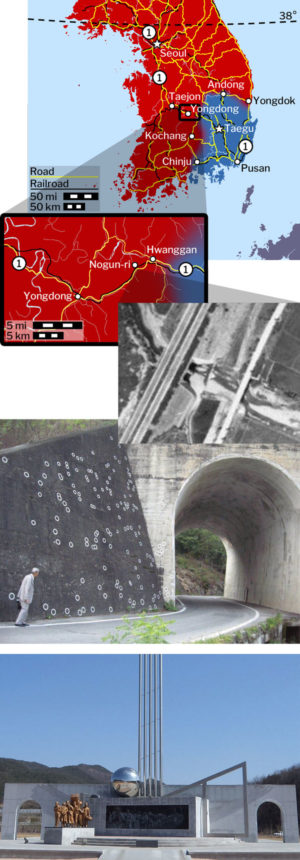 Jul 29: Korean War: Allies pull back to the Naktong River. North Korean forces continue to chip away at American positions along the western front. The biggest gains for the Korean Peoples Army (KPA) are at Kochang (Geochang). After Kochang falls, the American forces pull back fifteen miles to the banks of the Nakdong River, a formidable barrier that will form the western portion of the Pusan Perimeter, which UN Forces will fight to maintain for the next six weeks. Along the south coast, American forces continue to hold Chinju (Jinju). But already, guerrilla units are harassing transportation and communications along highway and railroad lines about ten miles north of Pusan (Busan).
Jul 29: Korean War: Allies pull back to the Naktong River. North Korean forces continue to chip away at American positions along the western front. The biggest gains for the Korean Peoples Army (KPA) are at Kochang (Geochang). After Kochang falls, the American forces pull back fifteen miles to the banks of the Nakdong River, a formidable barrier that will form the western portion of the Pusan Perimeter, which UN Forces will fight to maintain for the next six weeks. Along the south coast, American forces continue to hold Chinju (Jinju). But already, guerrilla units are harassing transportation and communications along highway and railroad lines about ten miles north of Pusan (Busan).
![]() Jul 29: Korean War: Nogun-ri massacre ends. Early in the morning, American forces withdraw from the village of Hwanggan, (Hwanggan-myeon) located less than two miles northeast of Nogun-ri (Nugeun-ri). This maneuver also brings about the withdrawal of the battalion positioned at the Nogun-ri railroad bridge. That afternoon, North Korean soldiers arrive at the bridge and help those few who are still alive. Over the past four days, an estimated 250-300 civilians, mostly women and children, have been killed in the strafing and shootings at Nogun-ri.
Jul 29: Korean War: Nogun-ri massacre ends. Early in the morning, American forces withdraw from the village of Hwanggan, (Hwanggan-myeon) located less than two miles northeast of Nogun-ri (Nugeun-ri). This maneuver also brings about the withdrawal of the battalion positioned at the Nogun-ri railroad bridge. That afternoon, North Korean soldiers arrive at the bridge and help those few who are still alive. Over the past four days, an estimated 250-300 civilians, mostly women and children, have been killed in the strafing and shootings at Nogun-ri.
![]()
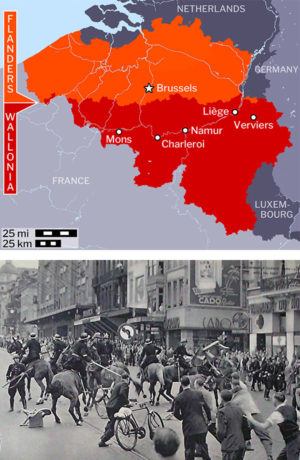 Jul 29: Belgian “Royal Question” crisis: Country feared on the verge of splitting apart. Strikes throughout Belgium have continued to paralyze the country’s industry since Wednesday, and sabotage has become a daily occurrence. One Socialist newspaper reports that a provisional parliament may be called in Liège, increasing fears that Belgium is breaking apart. The Belgian Government, controlled by the Flanders-based Social Christian (Catholic) party, orders emergency measures in Brussels, Liège, Namur, and Verviers. Gatherings of more than five people are forbidden. The Army and security units are reinforced and reservists called up. Two infantry regiments take up positions south of Brussels to prevent Walloon strikers from marching on the capital. Other troops are sent to Charleroi and Mons. In Brussels, six hundred mounted police, brandishing sabers, charge into a protest march in the heart of the city. As soon as the 3,000-strong crowd is broken up and driven into side streets, police on foot move in swinging truncheons and rifle butts. The Socialist Party decides to suspend demonstrations for Sunday, but gives the go-ahead for a mass march on Brussells from Wallonia next Tuesday. As night falls, Brussels resembles an armed camp, and it appears that the hardline pro-Leopoldist factions in the government are consolidating their grip on power.
Jul 29: Belgian “Royal Question” crisis: Country feared on the verge of splitting apart. Strikes throughout Belgium have continued to paralyze the country’s industry since Wednesday, and sabotage has become a daily occurrence. One Socialist newspaper reports that a provisional parliament may be called in Liège, increasing fears that Belgium is breaking apart. The Belgian Government, controlled by the Flanders-based Social Christian (Catholic) party, orders emergency measures in Brussels, Liège, Namur, and Verviers. Gatherings of more than five people are forbidden. The Army and security units are reinforced and reservists called up. Two infantry regiments take up positions south of Brussels to prevent Walloon strikers from marching on the capital. Other troops are sent to Charleroi and Mons. In Brussels, six hundred mounted police, brandishing sabers, charge into a protest march in the heart of the city. As soon as the 3,000-strong crowd is broken up and driven into side streets, police on foot move in swinging truncheons and rifle butts. The Socialist Party decides to suspend demonstrations for Sunday, but gives the go-ahead for a mass march on Brussells from Wallonia next Tuesday. As night falls, Brussels resembles an armed camp, and it appears that the hardline pro-Leopoldist factions in the government are consolidating their grip on power.
▲Sunday, July 30
![]()
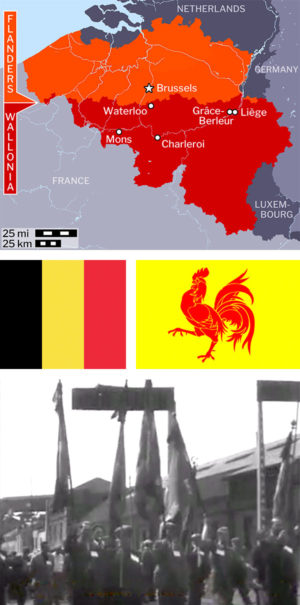 Jul 30: Belgian “Royal Question” crisis: Civil war feared as police open fire on protesters. Belgium teeters on the brink of civil war when police open fire in on a group of about 500 Socialists attending a meeting in Grâce-Berleur, a suburb of Liège, where all meetings of more than five people are banned. Three are killed, two are wounded, and six more are injured in the subsequent fighting. One of those wounded is the mayor of Grâce-Berleur. The other wounded man is denied medical care for at least an hour and will die a week later. News of the shooting quickly flashes across Wallonia. Leaders in Mons, Charleroi, Liège and other cities angrily declare that they will ignore emergency measures and march on Brussels on Tuesday, come what may. A Socialist Deputy for Charleroi reminds the government that the Belgian Constitution guarantees the right to peaceful, unarmed protest. “If this right is denied to us then Belgium is no longer a free country and we shall be forced to resort to the sacred right of insurrection.” In Liège, where rumors about forming a break-away government are already circulating, angry protesters rip down the national tricolor and hoist the yellow flag bearing the red rooster of Wallonia. Police there surround the city and insist that not a single marcher will get to Brussels. The Interior Ministry says it will set up armed roadblocks at Waterloo and other southern approaches on Monday. The governor of Brabant, the lone bi-national province surrounding Brussels, says he will confiscate all buses and cars trying to carry protesters into the city. A deadly showdown now appears inevitable. Late Sunday night, Socialist Party leader Max Buset warns Prime Minister Jean Duvieusart, “If something is not done, it will be civil war tomorrow.” Duvieusart immediately speeds to Laeken Castle to confer with the King.
Jul 30: Belgian “Royal Question” crisis: Civil war feared as police open fire on protesters. Belgium teeters on the brink of civil war when police open fire in on a group of about 500 Socialists attending a meeting in Grâce-Berleur, a suburb of Liège, where all meetings of more than five people are banned. Three are killed, two are wounded, and six more are injured in the subsequent fighting. One of those wounded is the mayor of Grâce-Berleur. The other wounded man is denied medical care for at least an hour and will die a week later. News of the shooting quickly flashes across Wallonia. Leaders in Mons, Charleroi, Liège and other cities angrily declare that they will ignore emergency measures and march on Brussels on Tuesday, come what may. A Socialist Deputy for Charleroi reminds the government that the Belgian Constitution guarantees the right to peaceful, unarmed protest. “If this right is denied to us then Belgium is no longer a free country and we shall be forced to resort to the sacred right of insurrection.” In Liège, where rumors about forming a break-away government are already circulating, angry protesters rip down the national tricolor and hoist the yellow flag bearing the red rooster of Wallonia. Police there surround the city and insist that not a single marcher will get to Brussels. The Interior Ministry says it will set up armed roadblocks at Waterloo and other southern approaches on Monday. The governor of Brabant, the lone bi-national province surrounding Brussels, says he will confiscate all buses and cars trying to carry protesters into the city. A deadly showdown now appears inevitable. Late Sunday night, Socialist Party leader Max Buset warns Prime Minister Jean Duvieusart, “If something is not done, it will be civil war tomorrow.” Duvieusart immediately speeds to Laeken Castle to confer with the King.
▲Monday, July 31
![]() Jul 31: Belgian “Royal Question” crisis: Government, opposition parties, king conduct frantic negotiations. The Belgian government, opposition political parties, and courtiers of King Leopold III engage in frantic negotiations overnight and all day to prevent the country from plunging into civil war on the heels of yesterday’s shooting. In April, Leopold III had offered to “temporarily” delegate his royal duties to his son, Crown Prince Baudouin. But after the Flemish-based Social Christian (Catholic) Party, which holds a bare majority in Parliament, rammed through controversial legislation to allow Leopold’s return from exile, neither the King nor the Catholic Party have mentioned Leopold’s proposal. But yesterday’s killing of three people in Liège has plunged the country into its worst crisis since World War II. Strikers all over Wallonia are assembling in southern Belgian towns for tomorrow’s march on Brussels. In Charleroi, 25,000 strikers hold a rallying parade, and the march has already begun in other areas. The government sends the army to man roadblocks at Waterloo, south of Brussels, and Belgian Radio broadcasts a Government order banning “all movements of persons and vehicles” towards the capital. Government negotiations continue through the day. By 8:00 p.m., there is general agreement between the Government, opposition parties and the King that he will delegate the royal prerogative to Baudouin “temporarily” with the understanding that the arrangement will become permanent on Baudouin’s twenty-first birthday next year. The agreement is drafted and only requires the Royal Seal. The announcement is scheduled to be broadcast on Belgian national radio at 10:00 p.m. But Leopold balks at the last minute. As of 3:00 a.m. the next morning, Belgian radio, which normally goes off the air at midnight, is still broadcasting recorded music.
Jul 31: Belgian “Royal Question” crisis: Government, opposition parties, king conduct frantic negotiations. The Belgian government, opposition political parties, and courtiers of King Leopold III engage in frantic negotiations overnight and all day to prevent the country from plunging into civil war on the heels of yesterday’s shooting. In April, Leopold III had offered to “temporarily” delegate his royal duties to his son, Crown Prince Baudouin. But after the Flemish-based Social Christian (Catholic) Party, which holds a bare majority in Parliament, rammed through controversial legislation to allow Leopold’s return from exile, neither the King nor the Catholic Party have mentioned Leopold’s proposal. But yesterday’s killing of three people in Liège has plunged the country into its worst crisis since World War II. Strikers all over Wallonia are assembling in southern Belgian towns for tomorrow’s march on Brussels. In Charleroi, 25,000 strikers hold a rallying parade, and the march has already begun in other areas. The government sends the army to man roadblocks at Waterloo, south of Brussels, and Belgian Radio broadcasts a Government order banning “all movements of persons and vehicles” towards the capital. Government negotiations continue through the day. By 8:00 p.m., there is general agreement between the Government, opposition parties and the King that he will delegate the royal prerogative to Baudouin “temporarily” with the understanding that the arrangement will become permanent on Baudouin’s twenty-first birthday next year. The agreement is drafted and only requires the Royal Seal. The announcement is scheduled to be broadcast on Belgian national radio at 10:00 p.m. But Leopold balks at the last minute. As of 3:00 a.m. the next morning, Belgian radio, which normally goes off the air at midnight, is still broadcasting recorded music.
![[Emphasis Mine]](http://jimburroway.com/wp-content/uploads/2018/01/WacoRaid1953.jpg)
